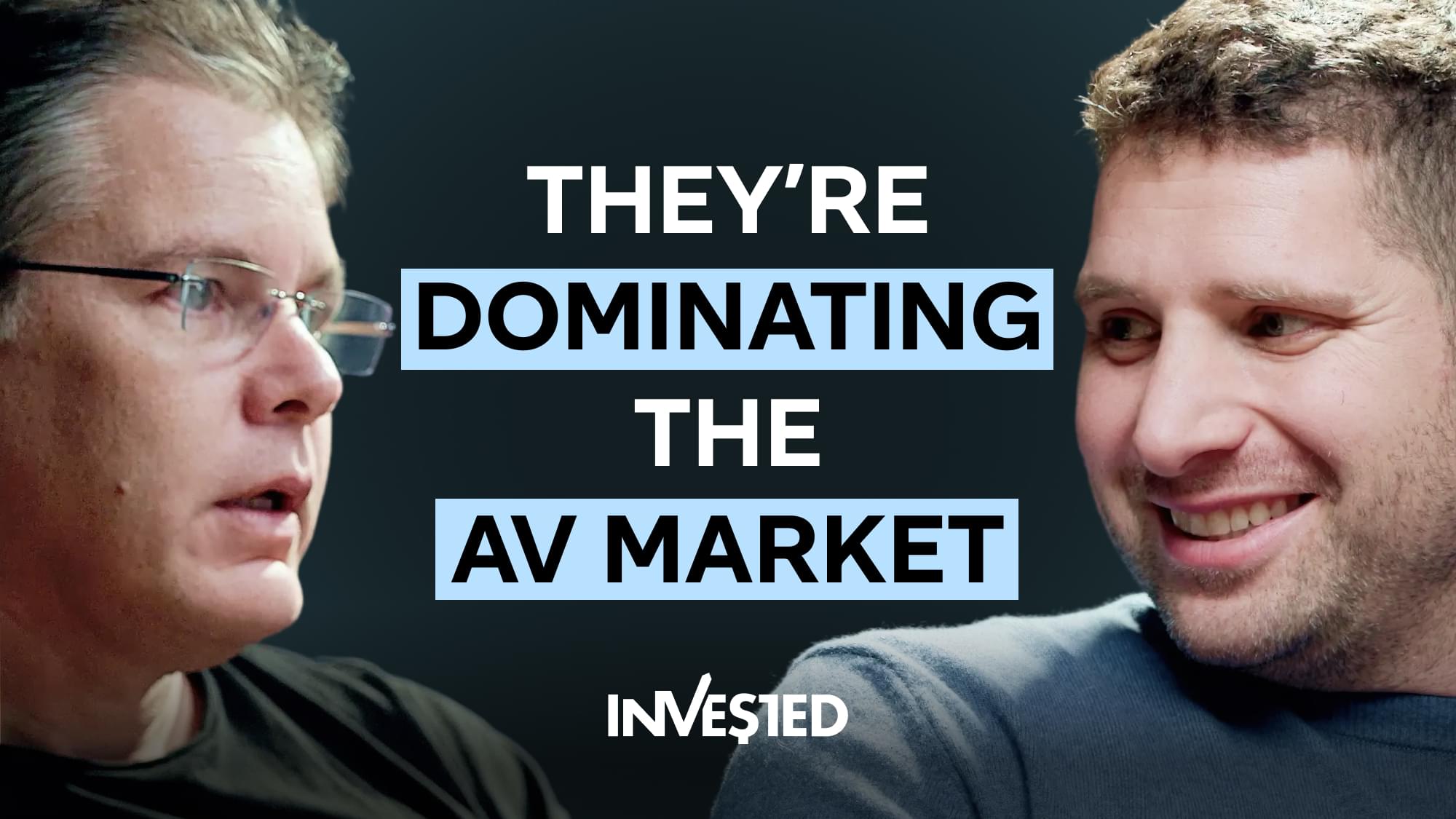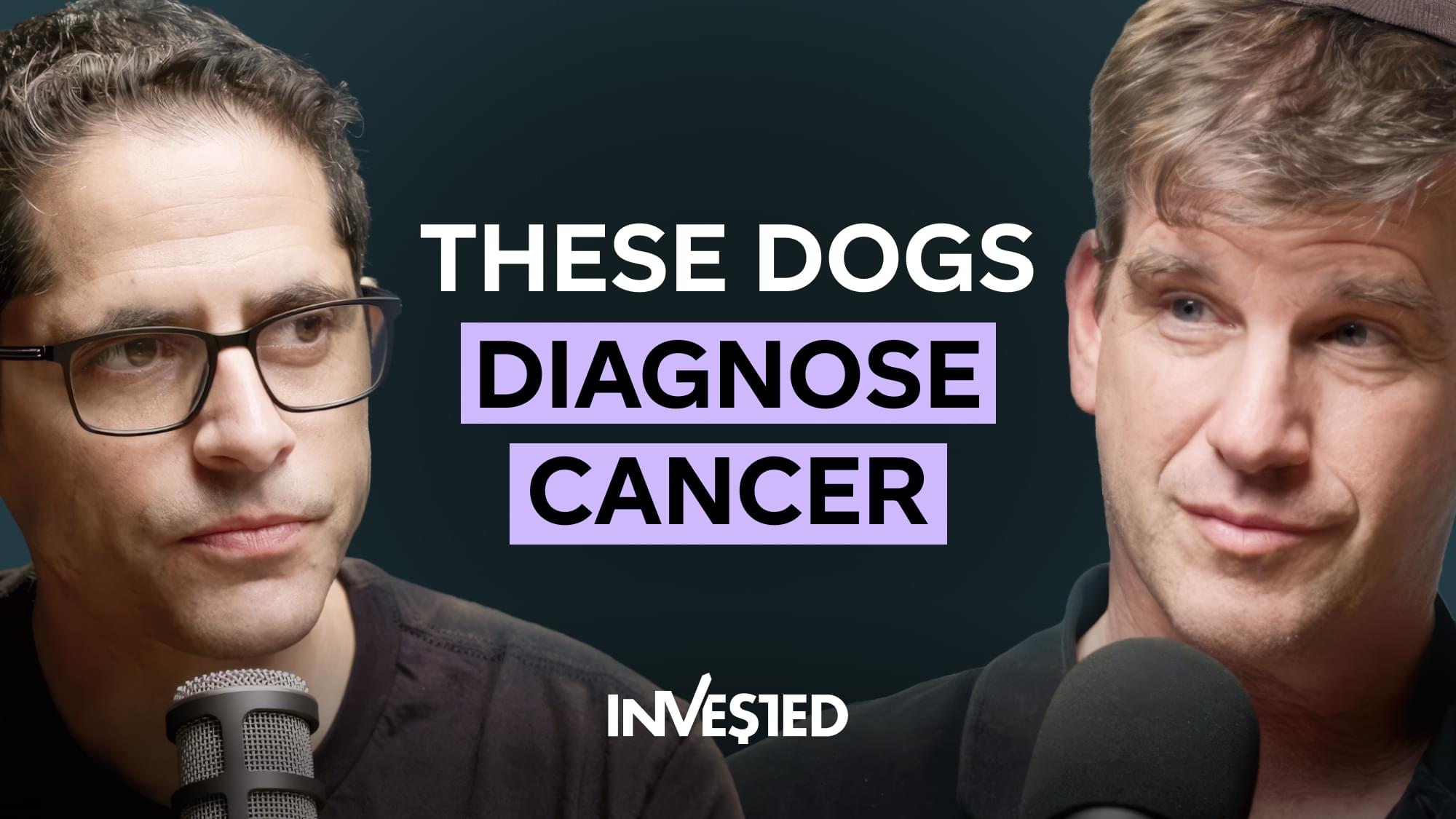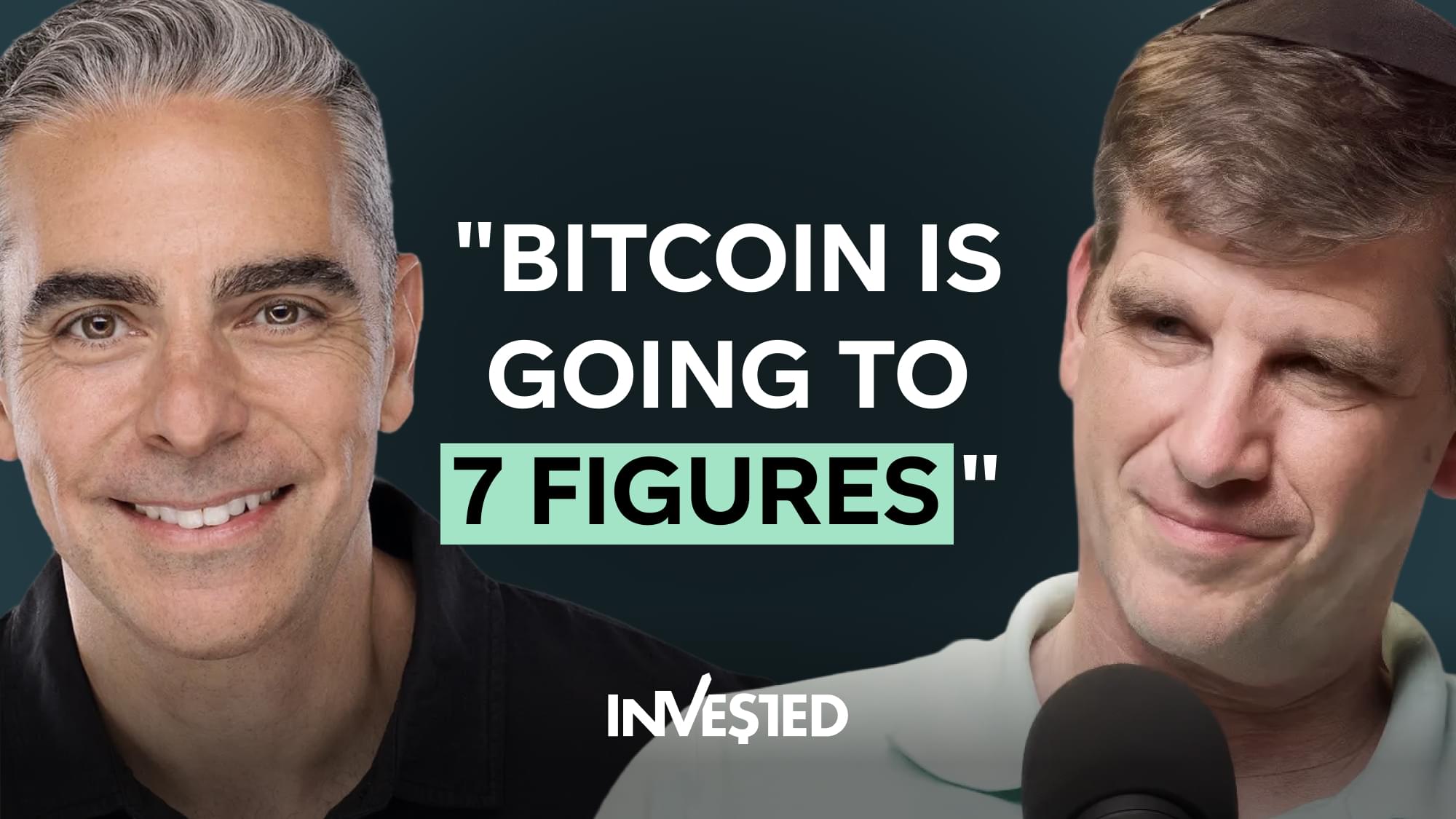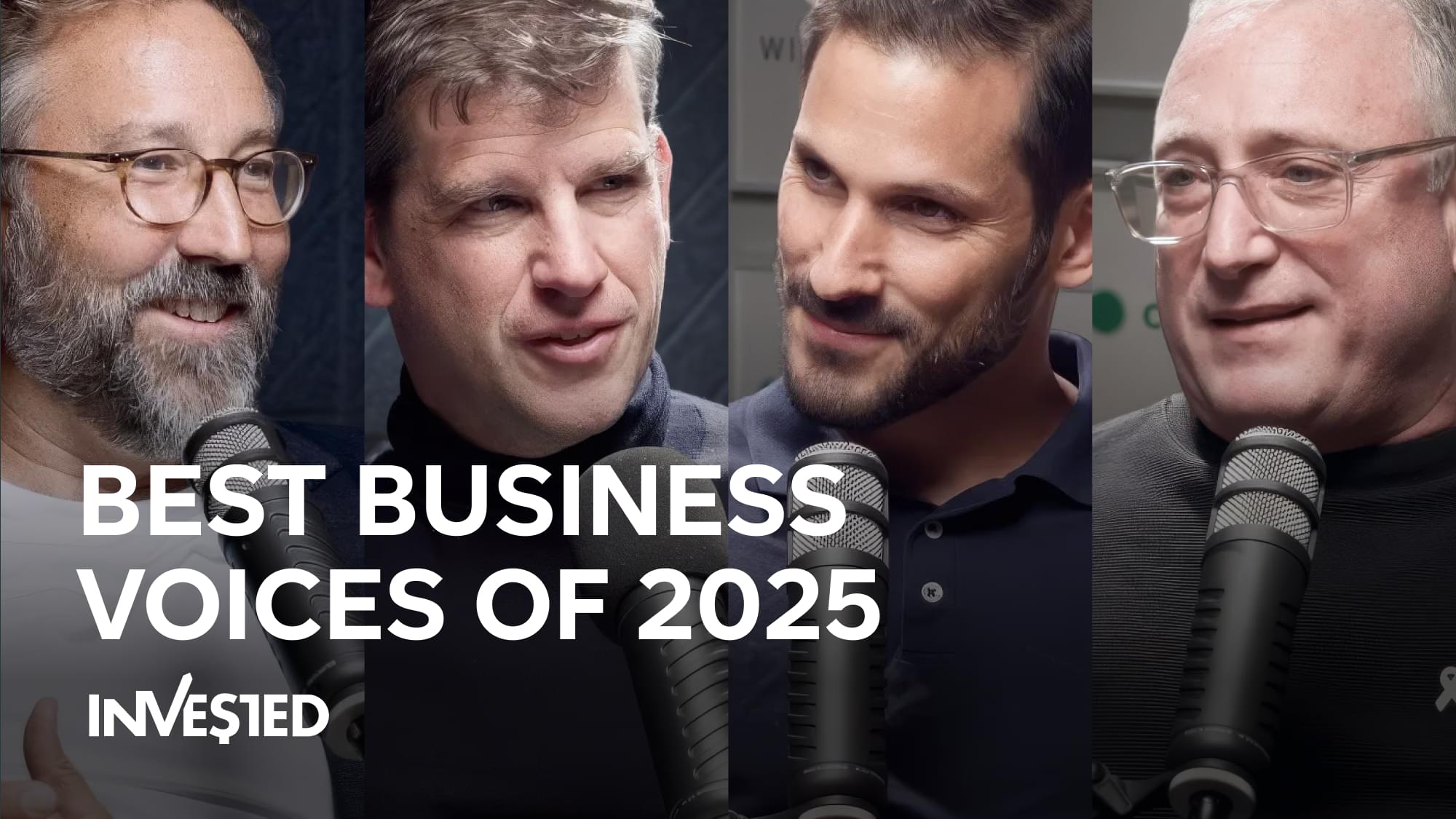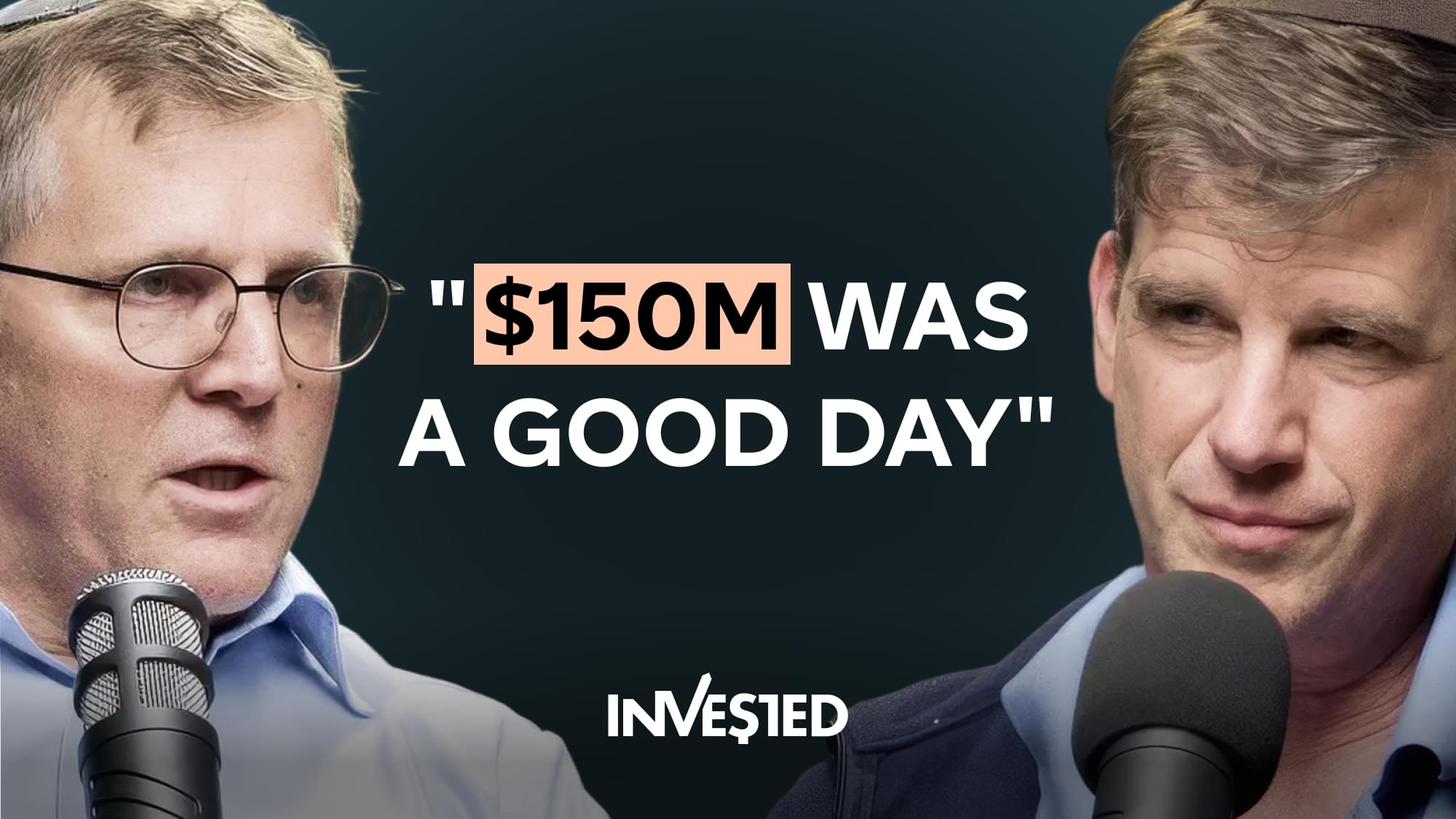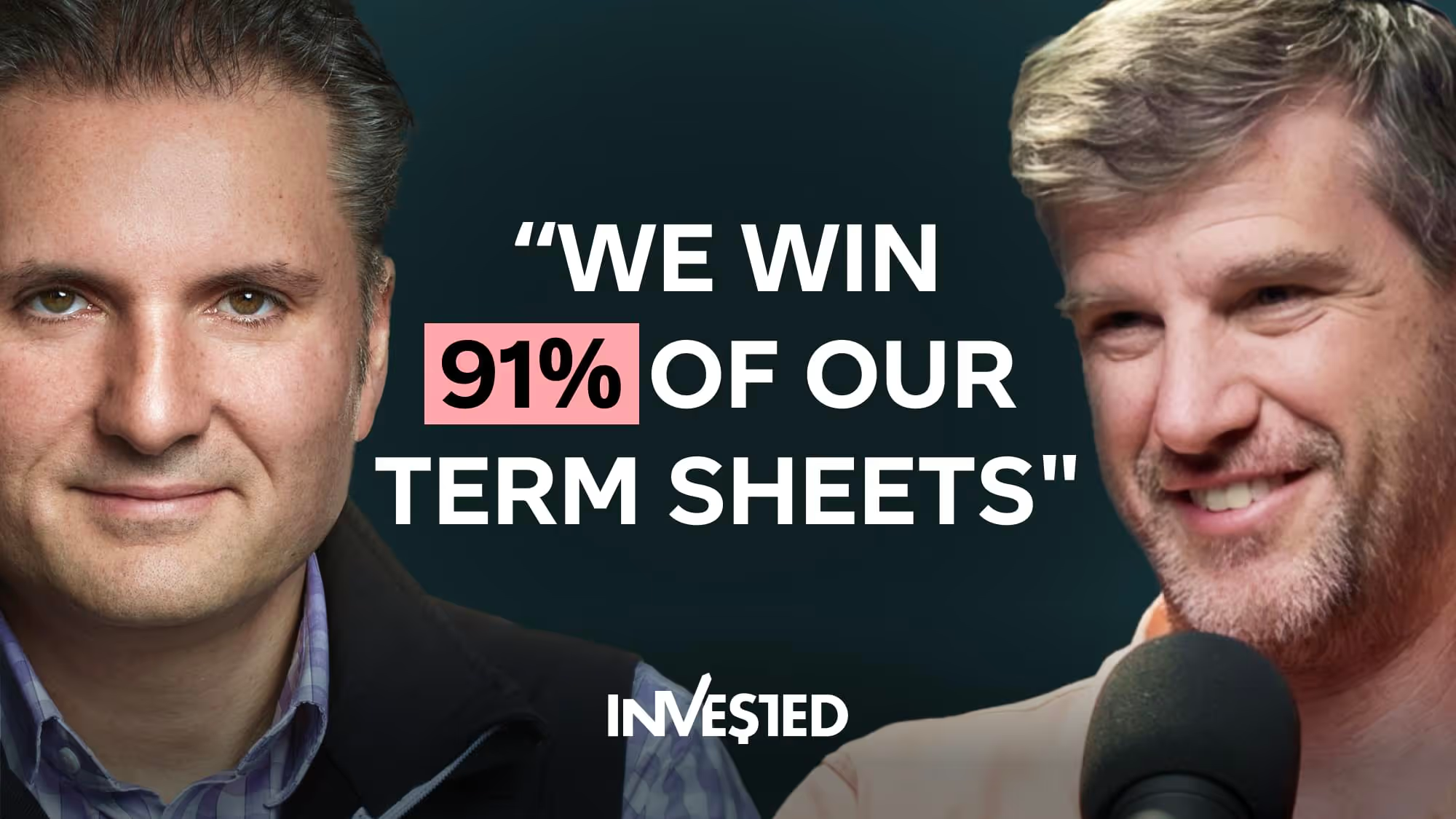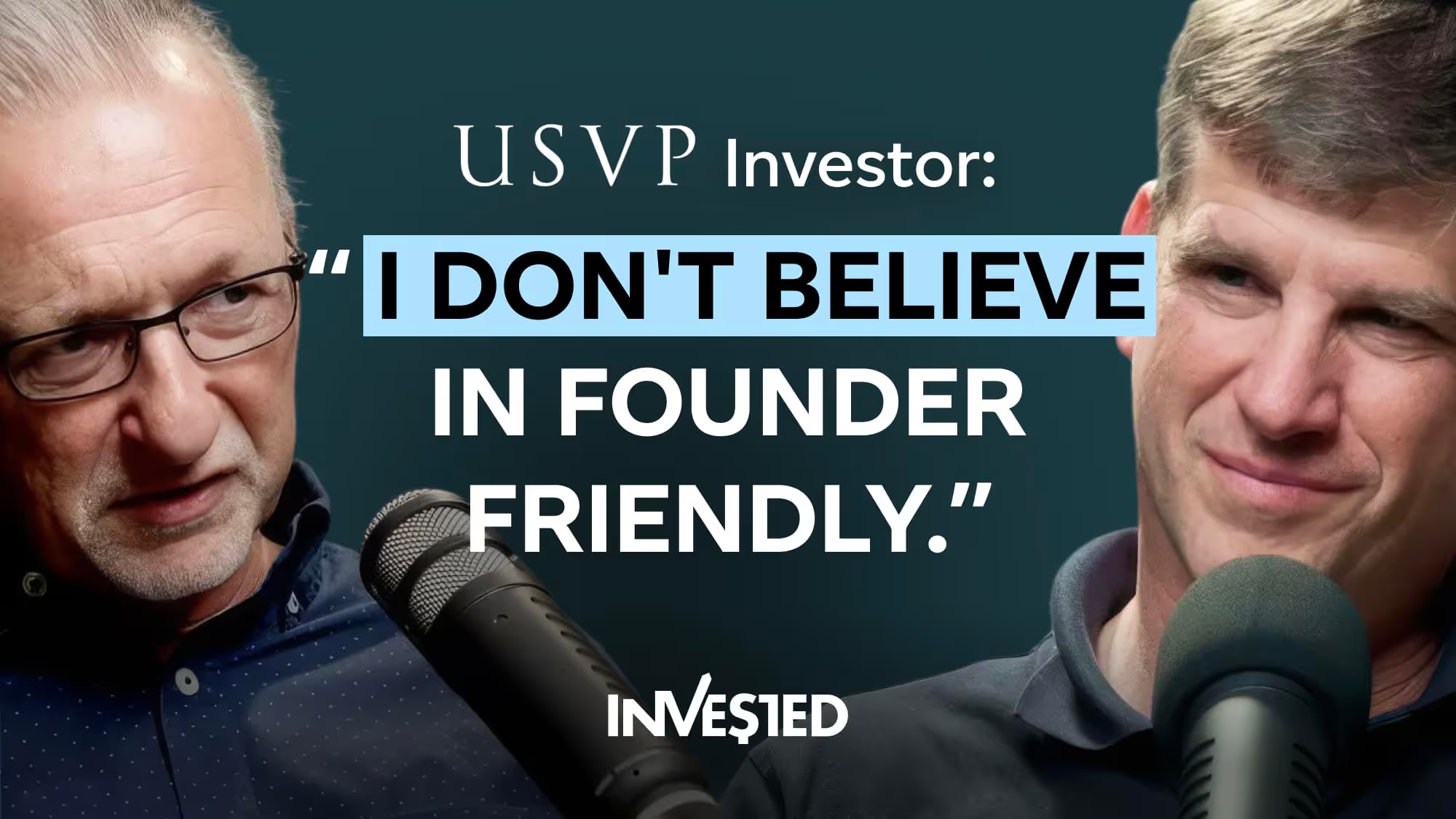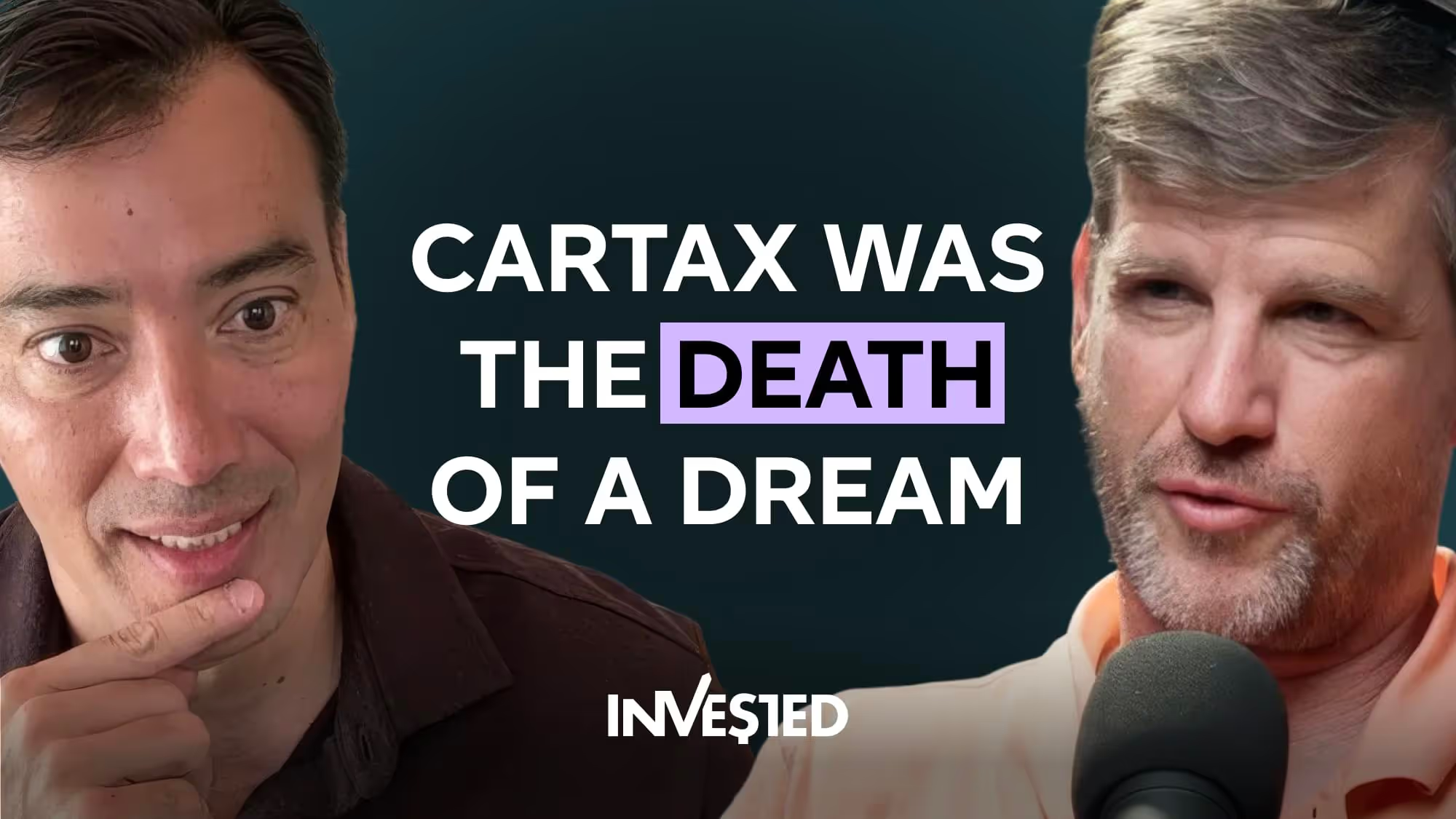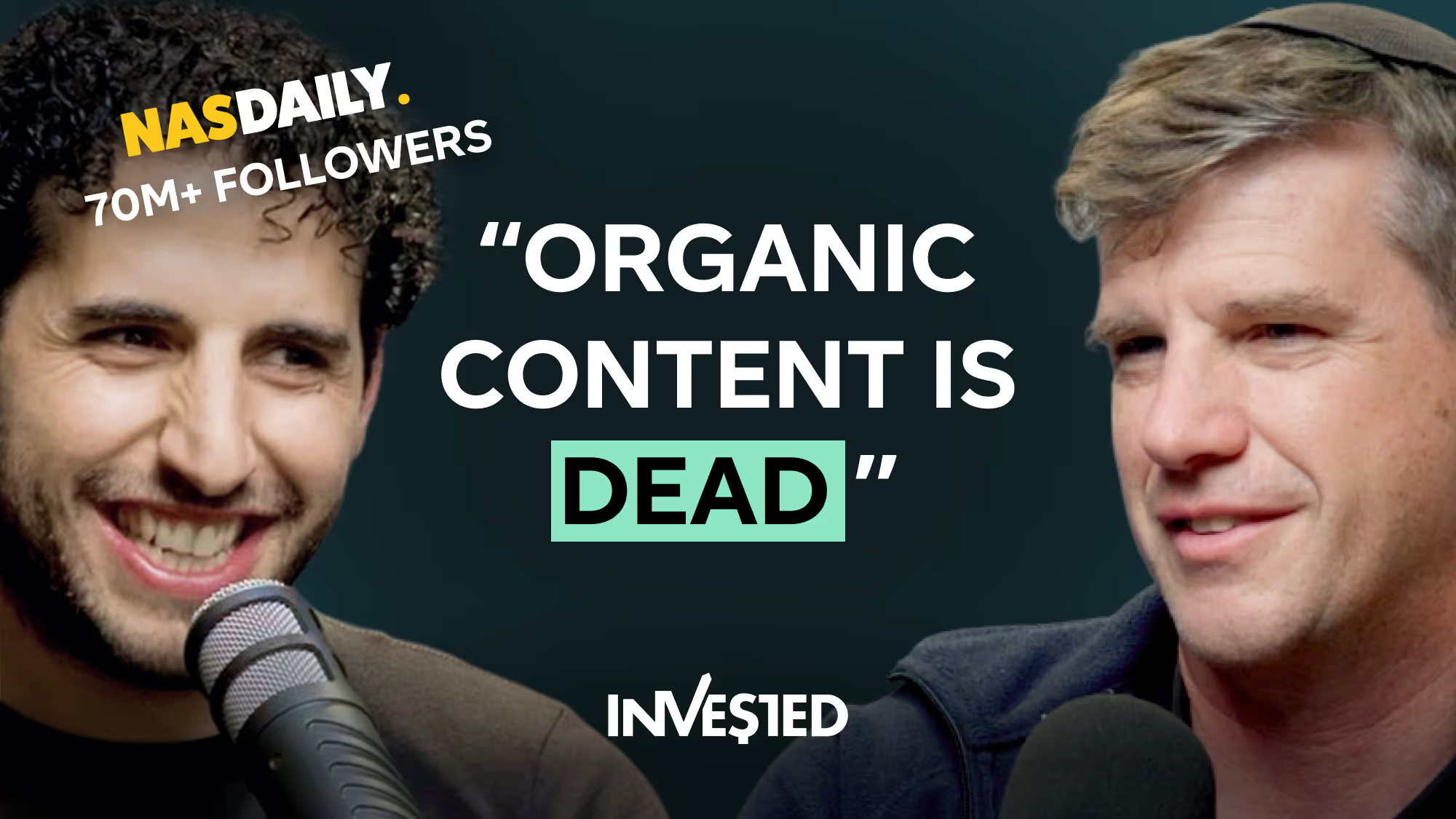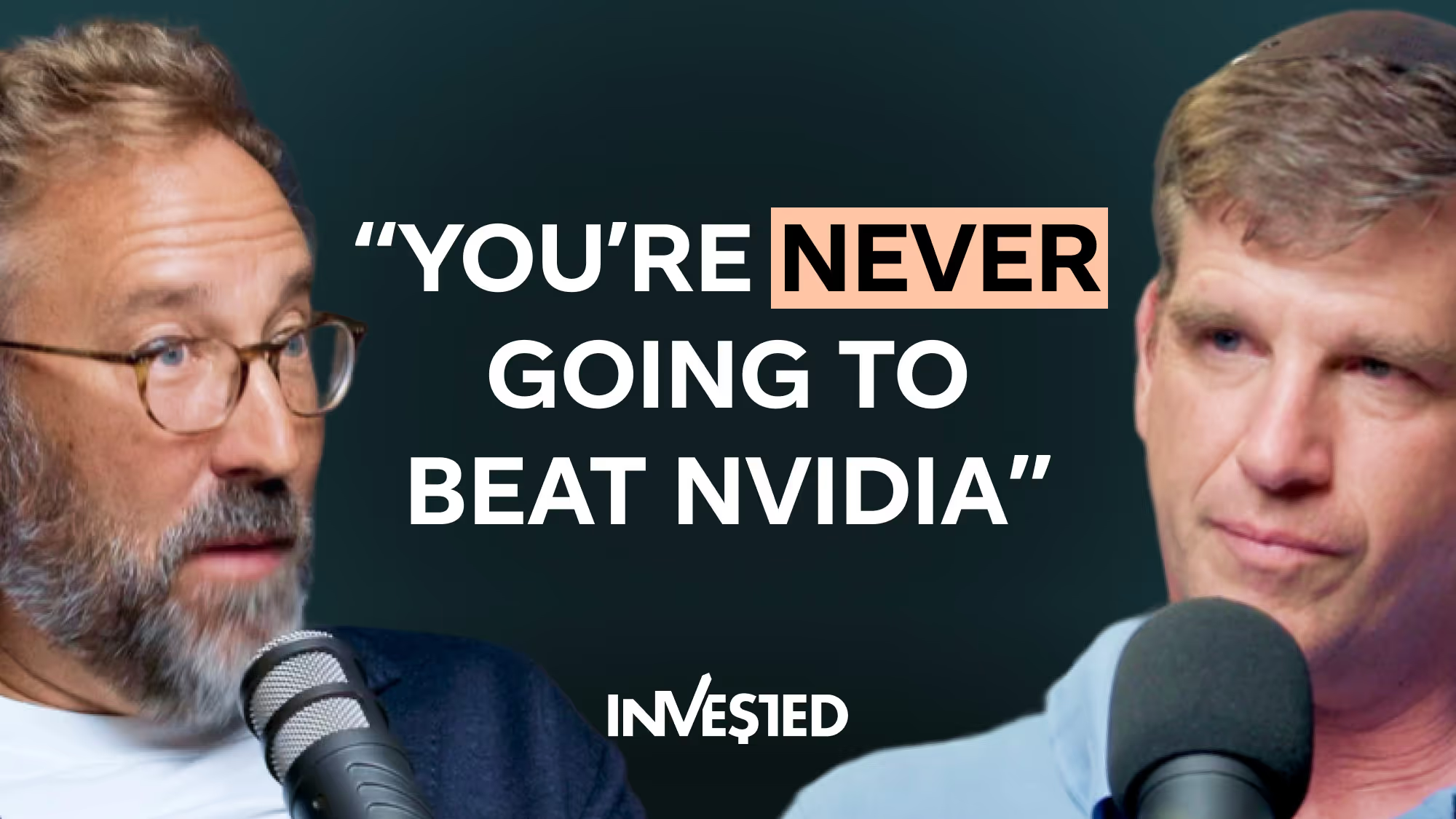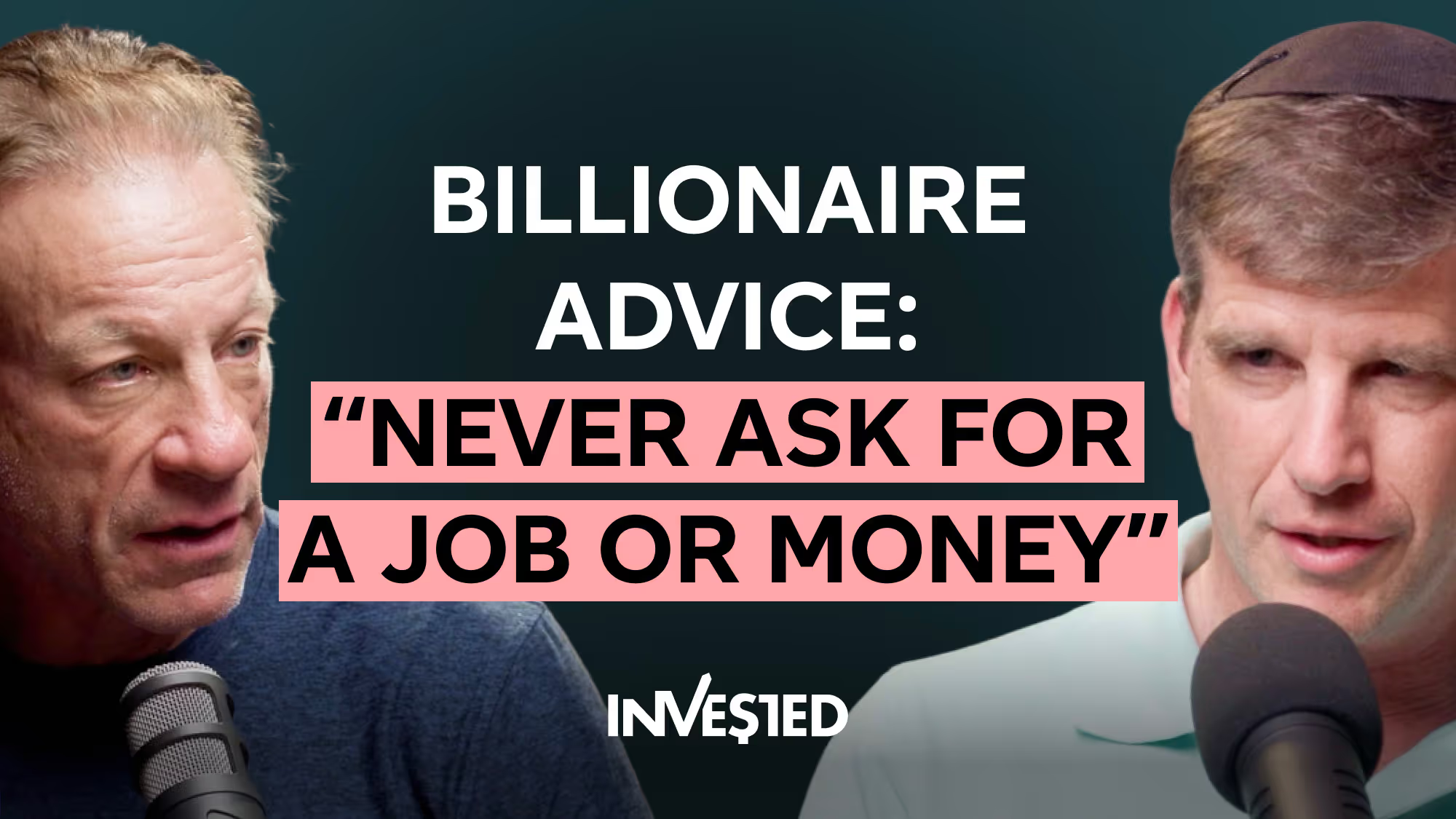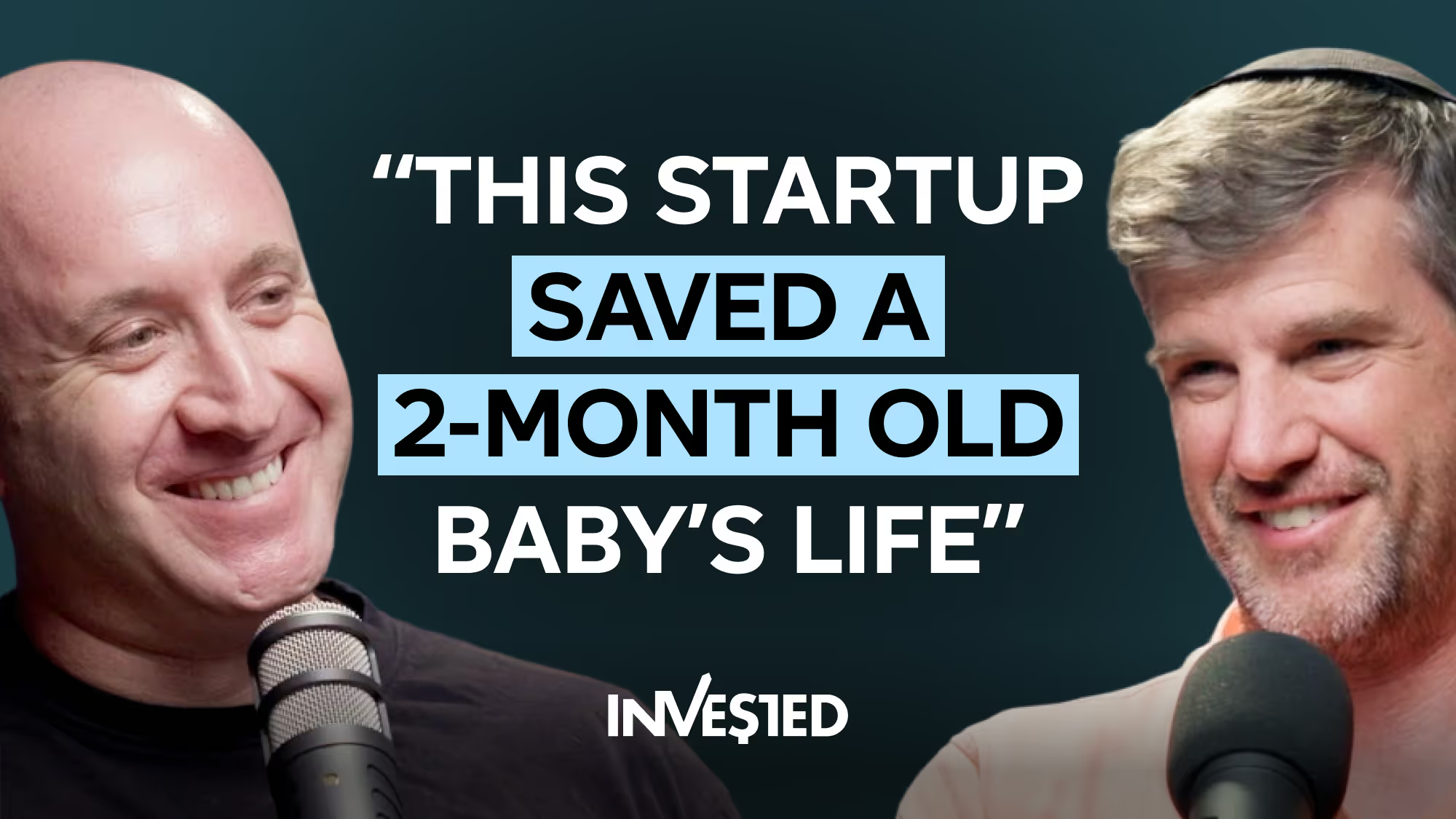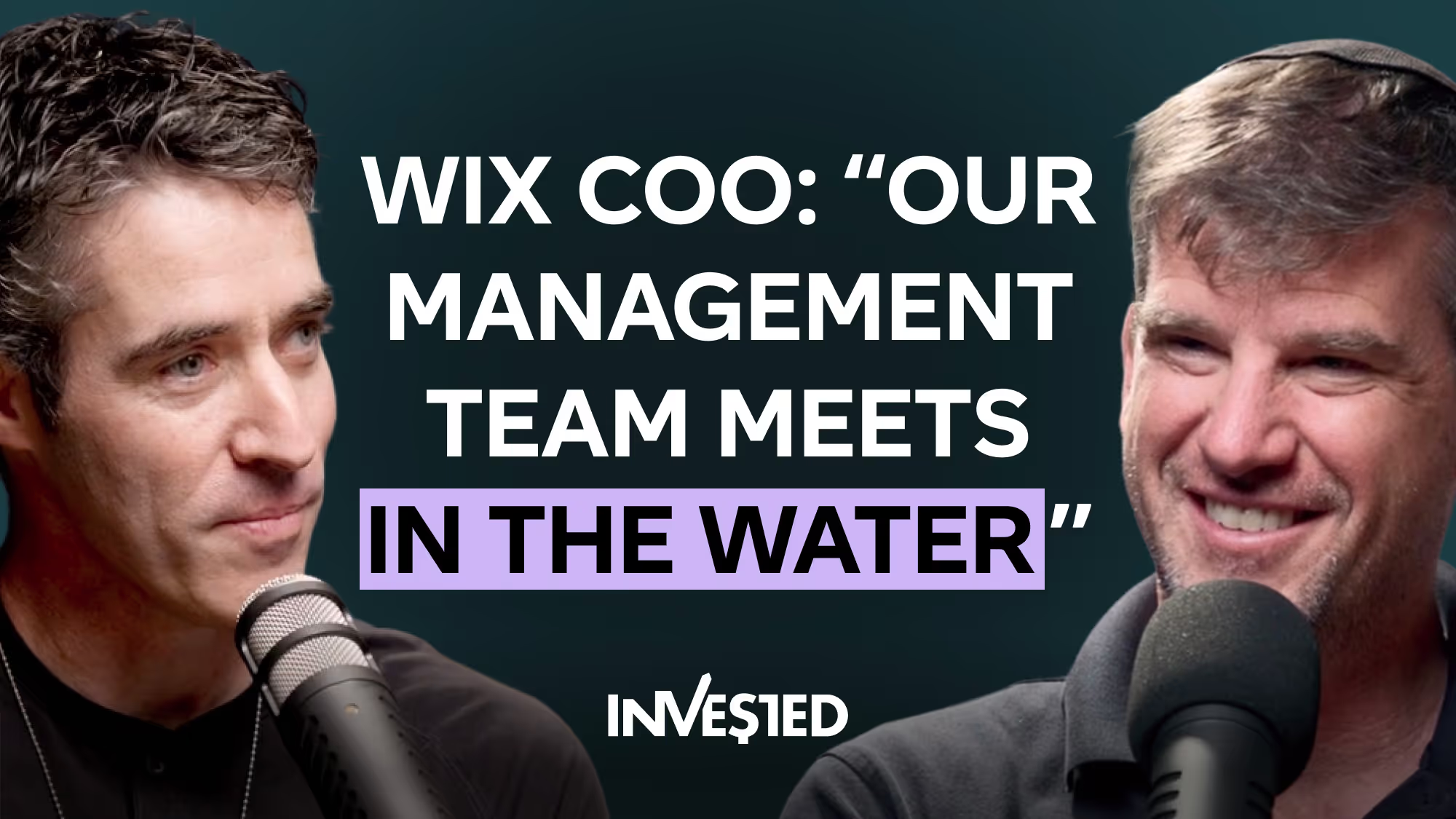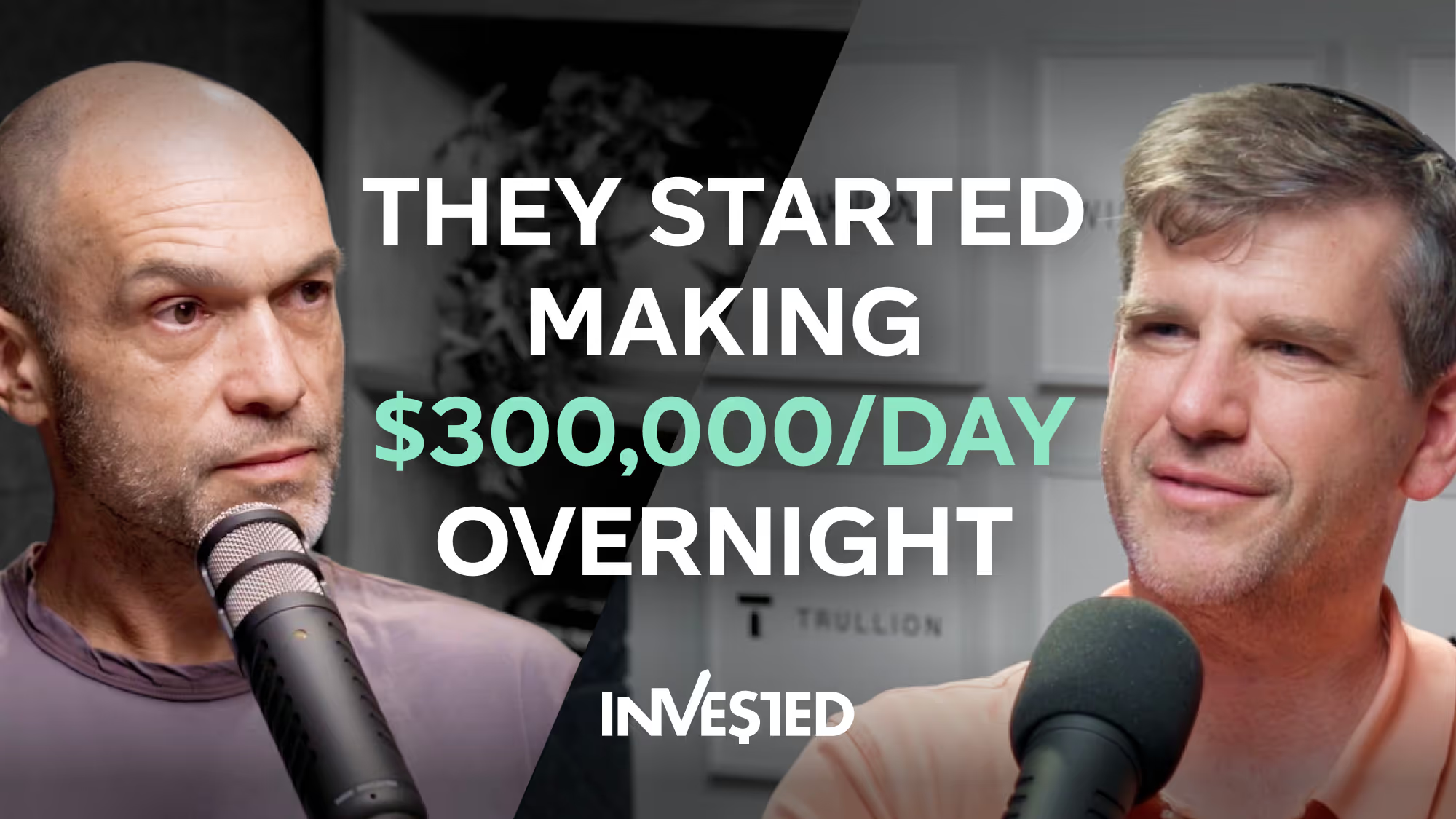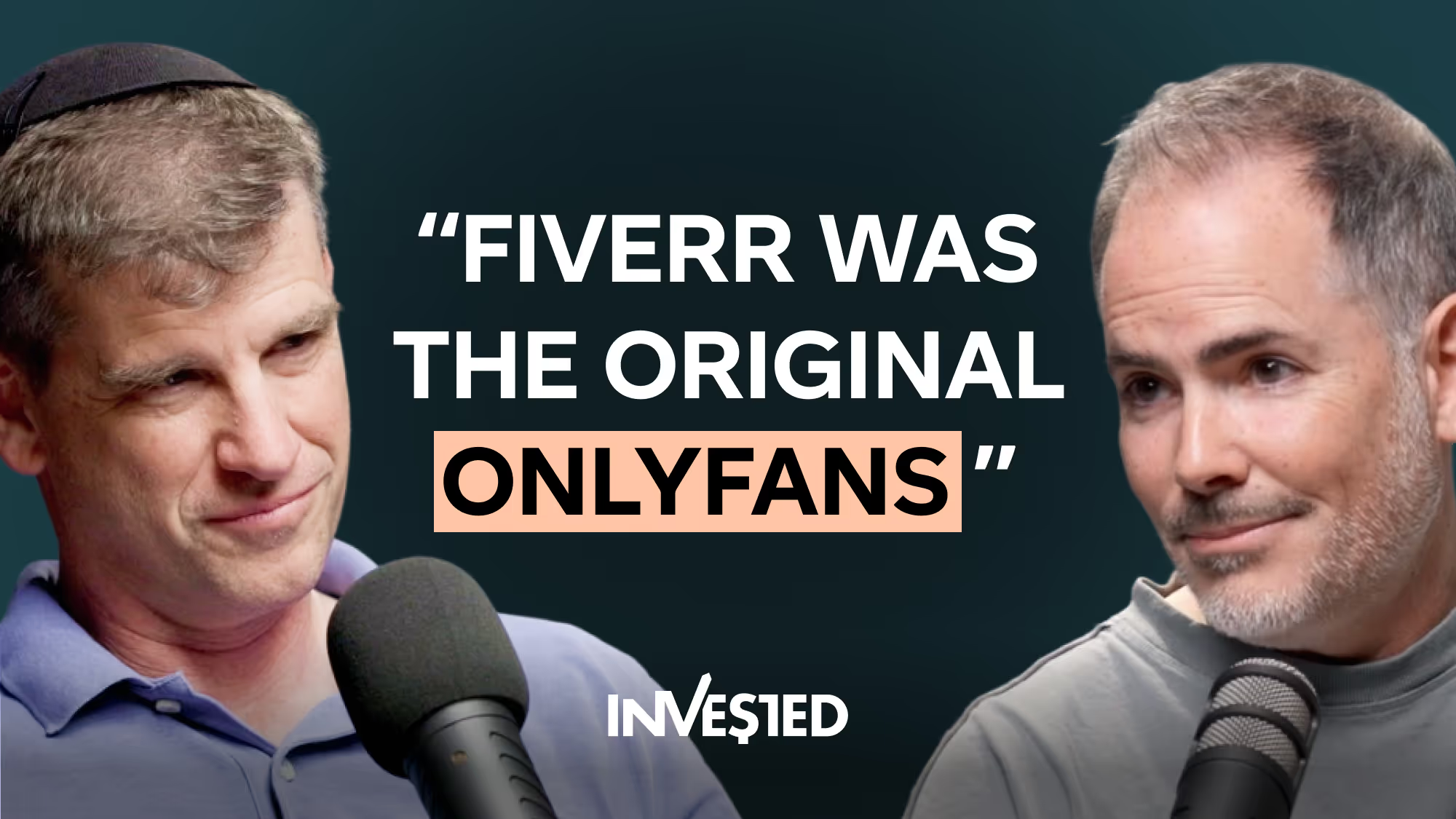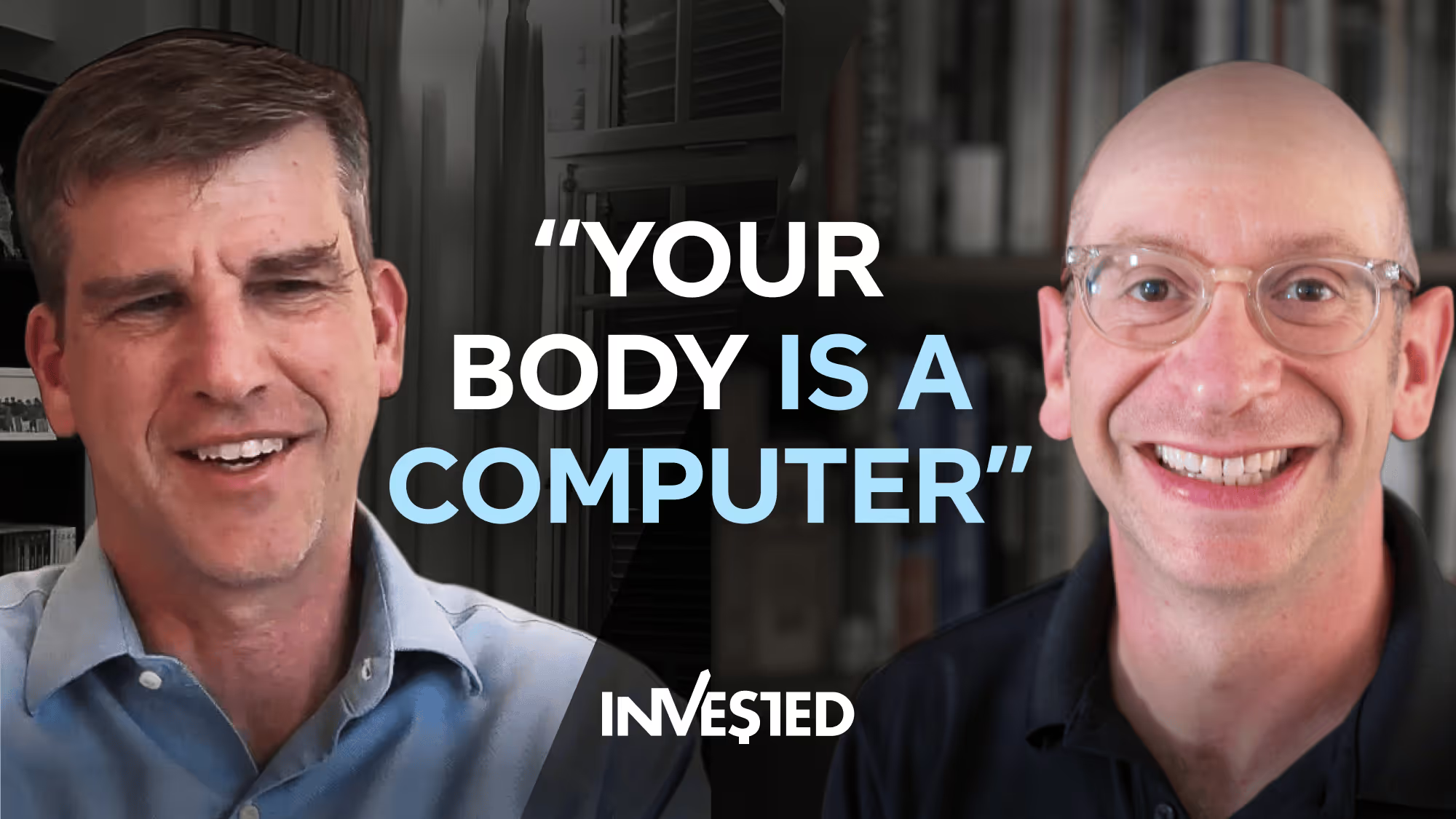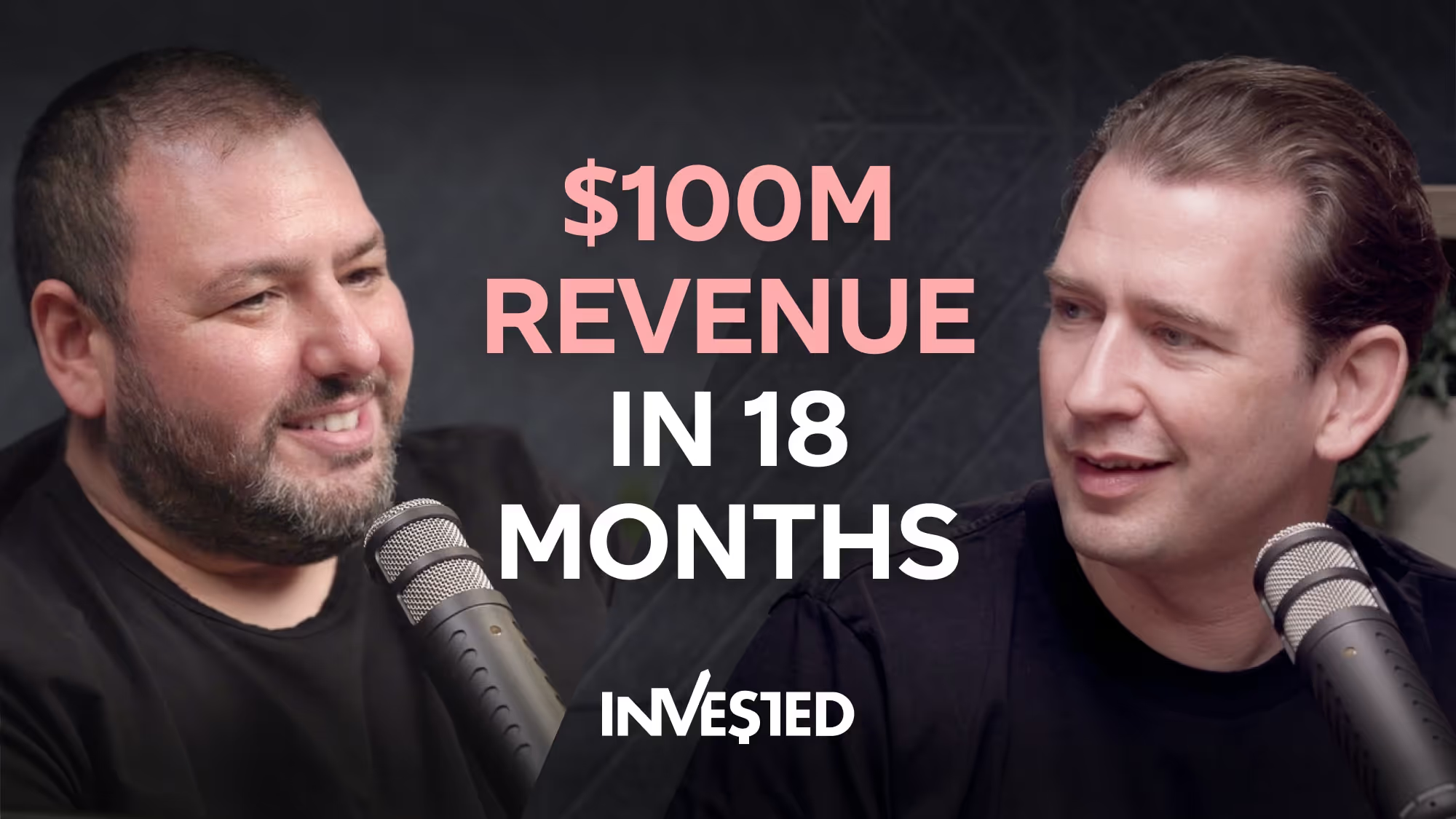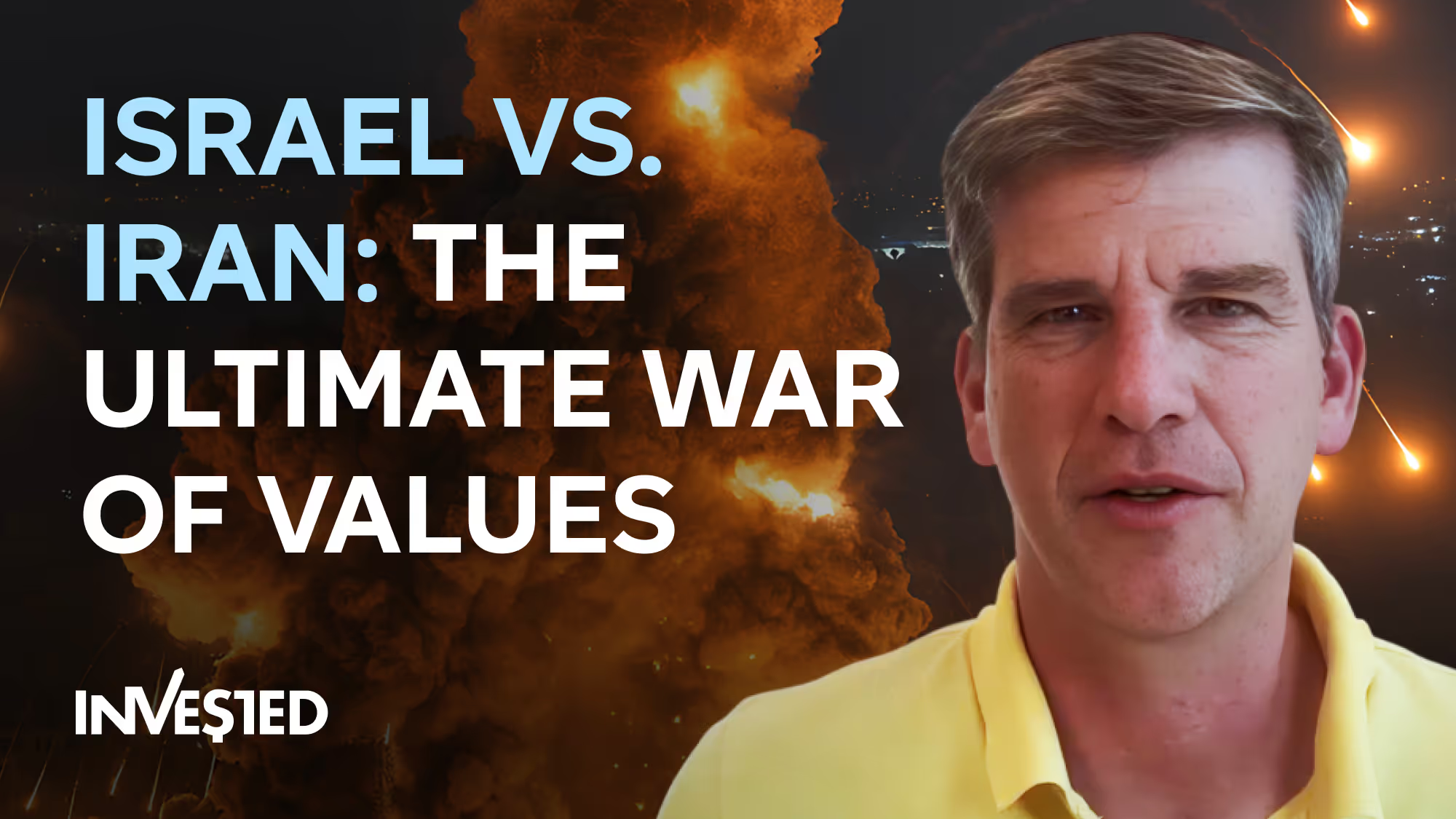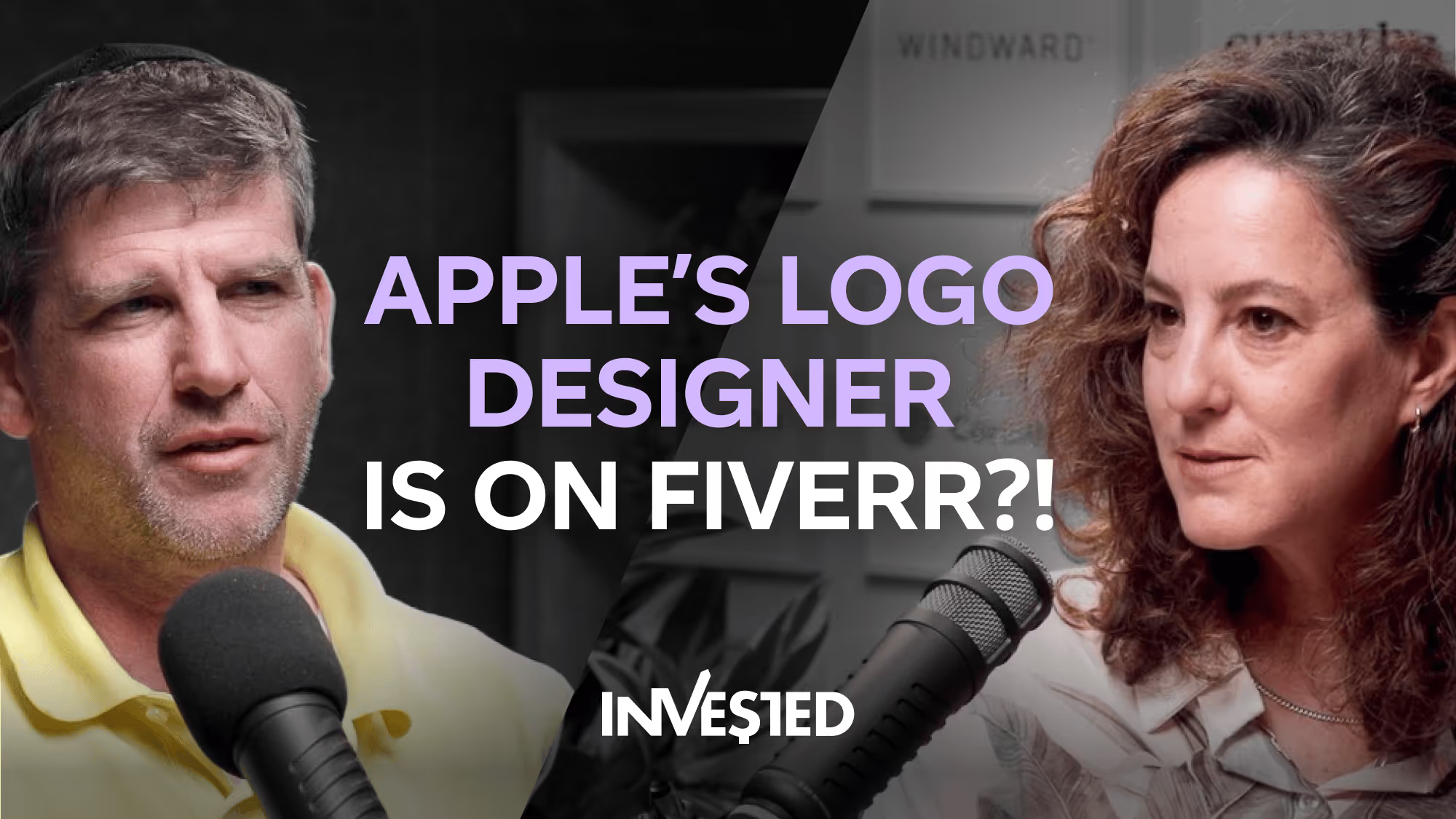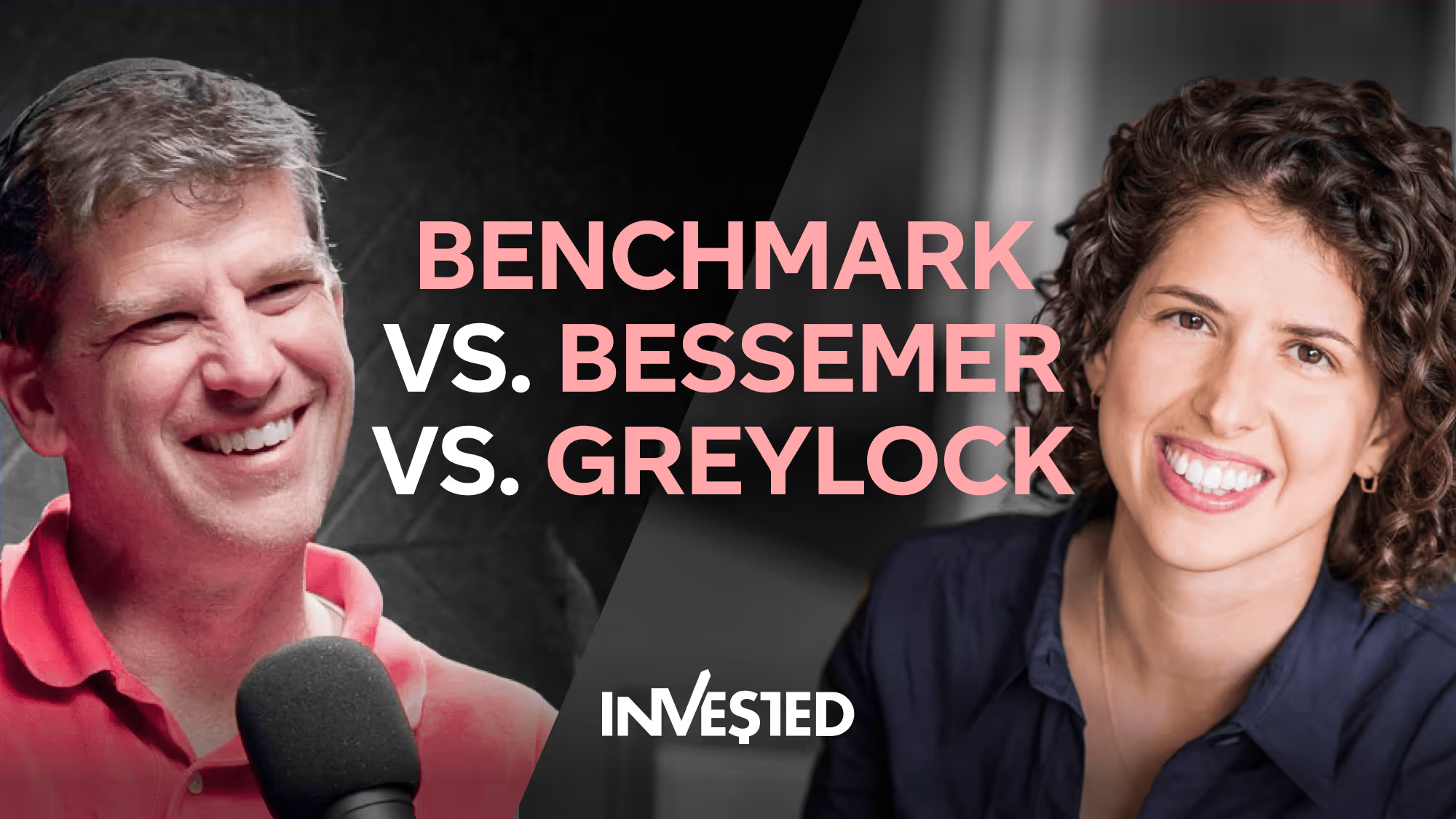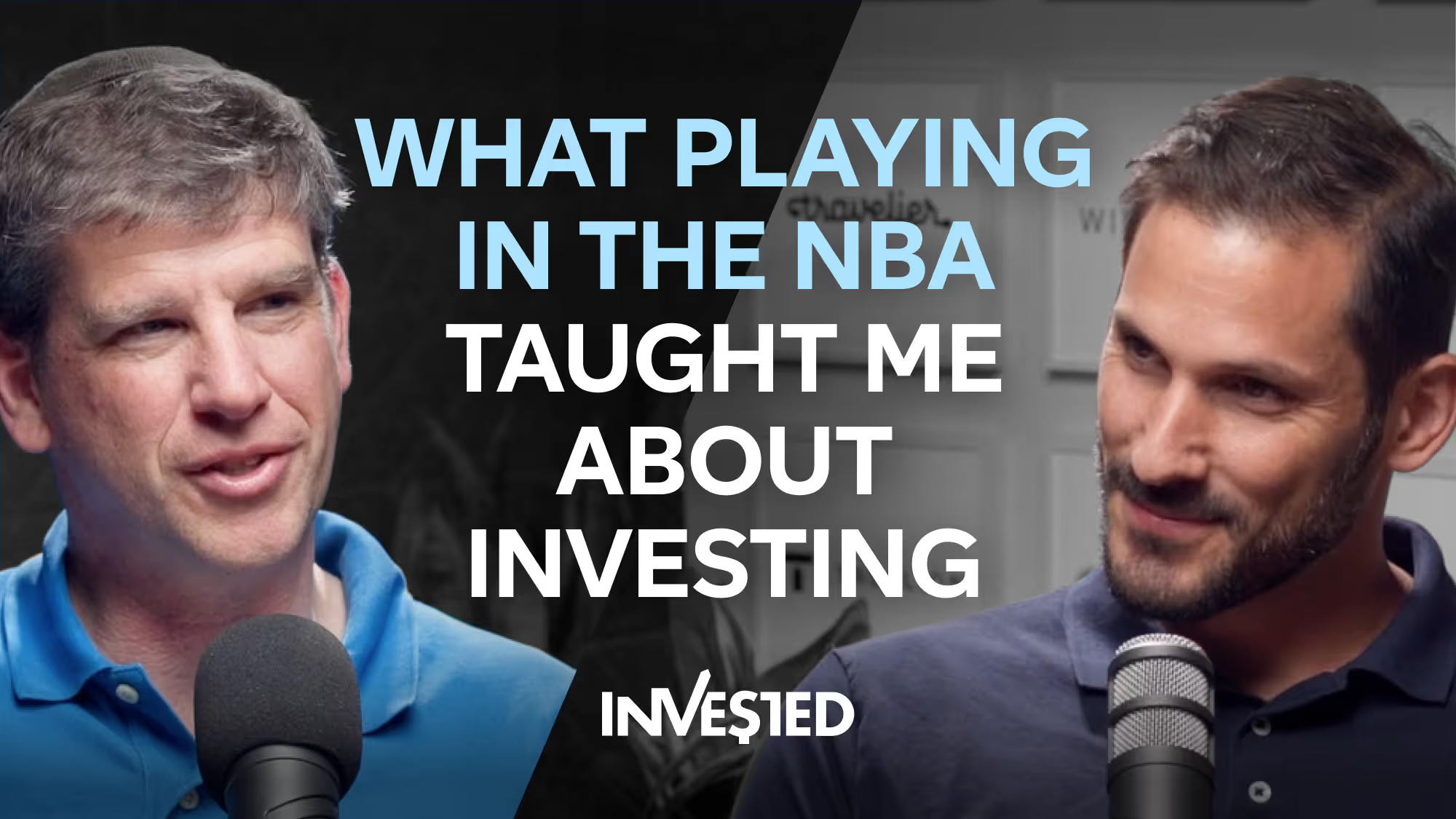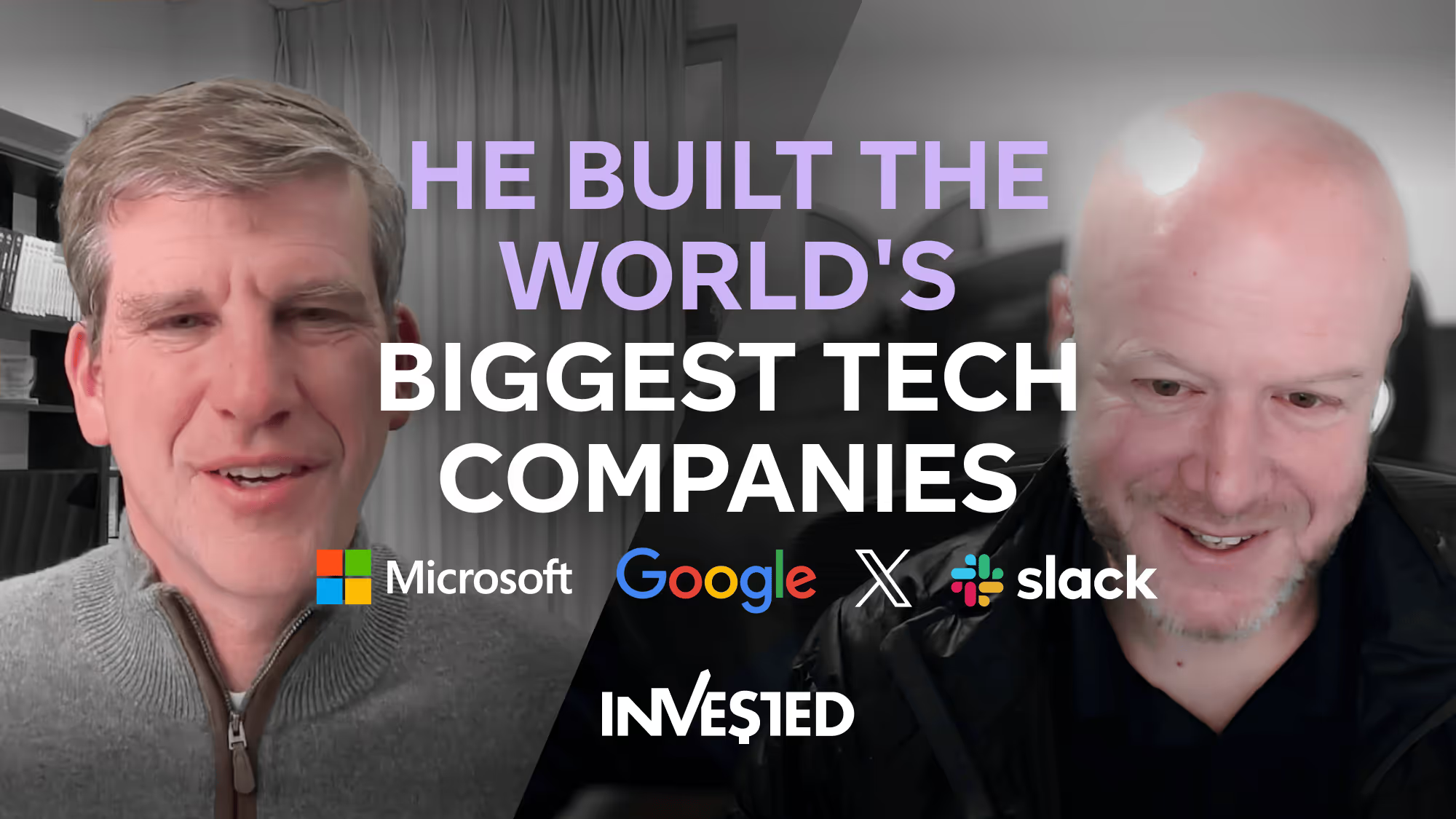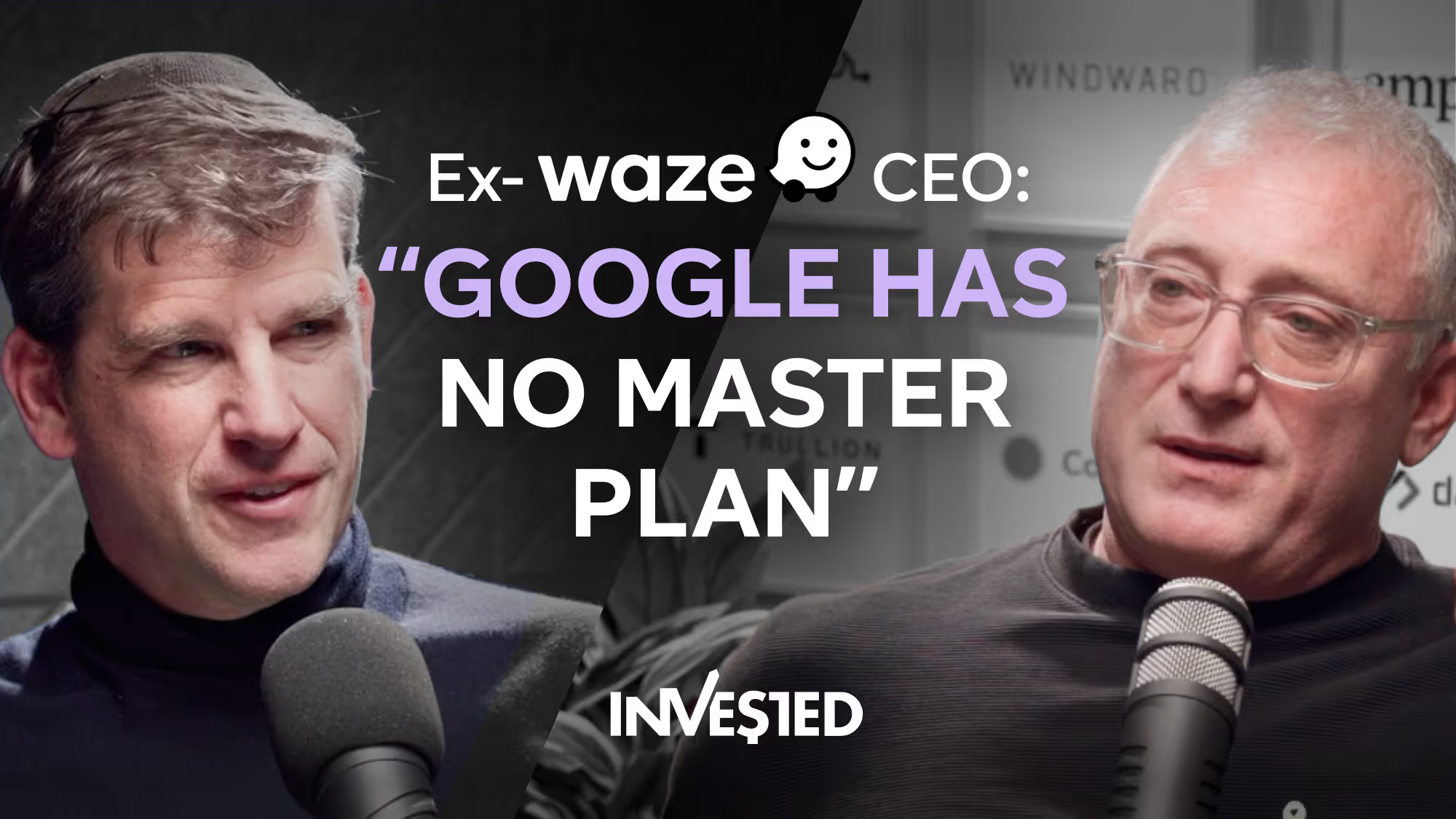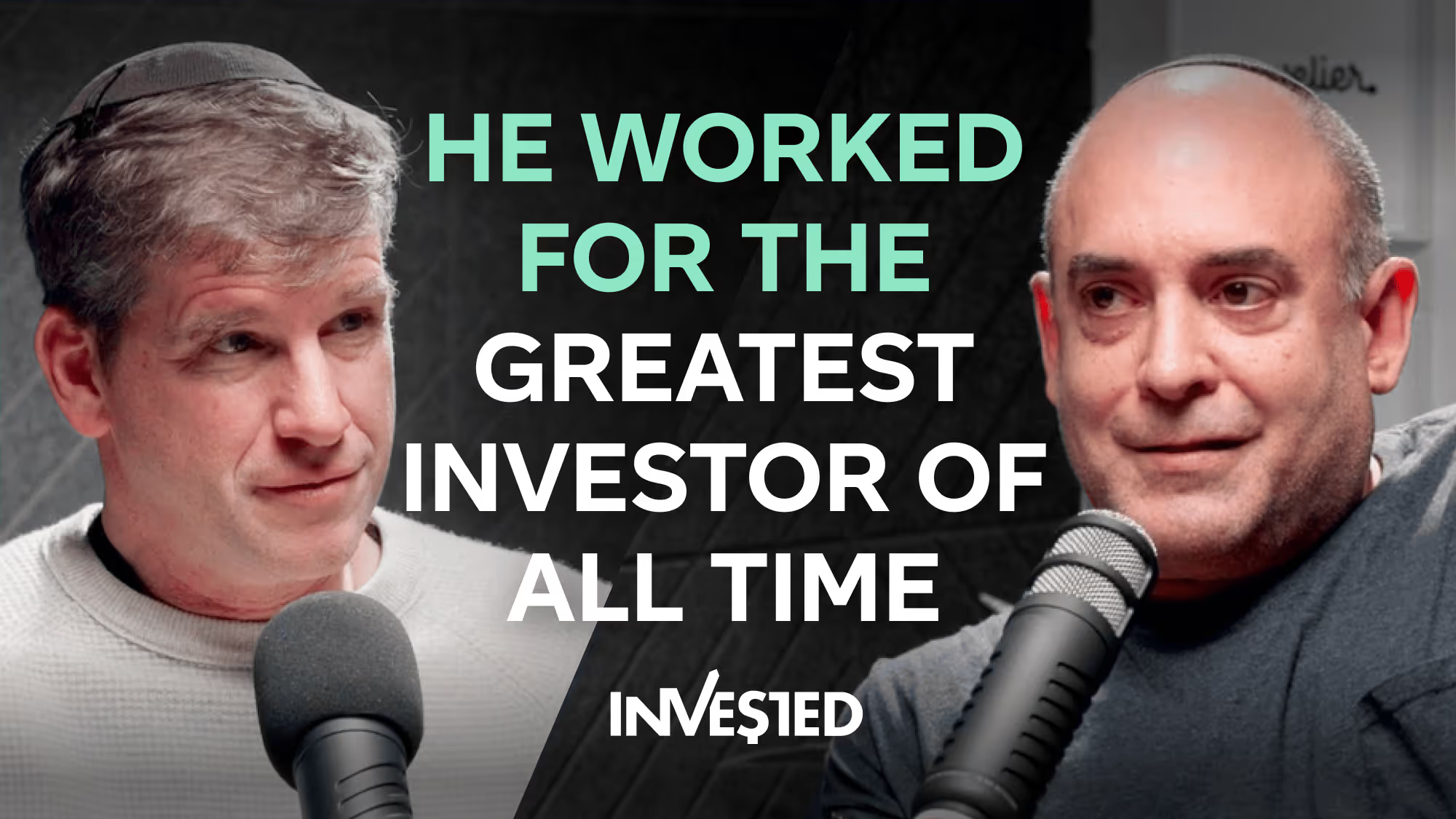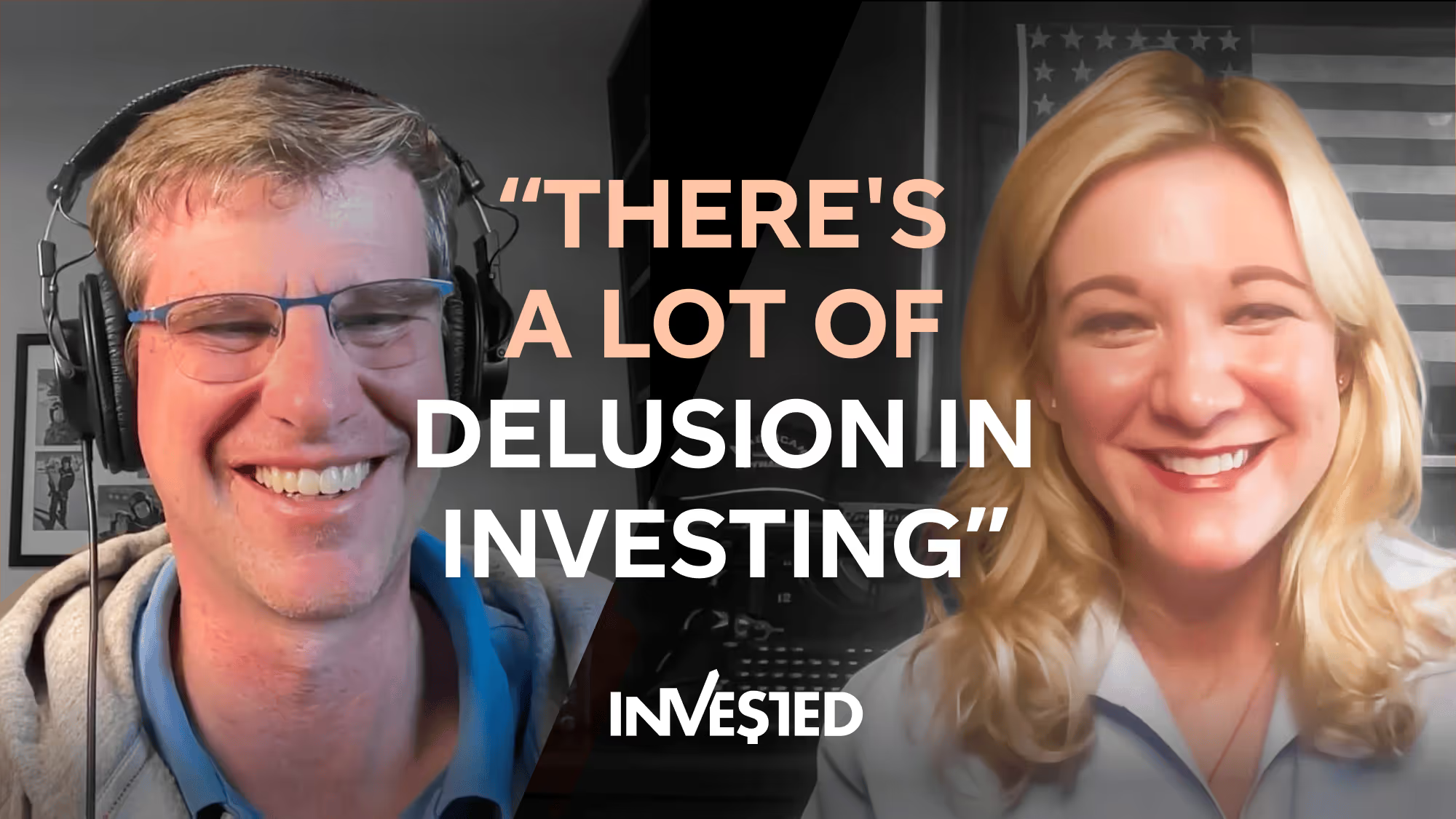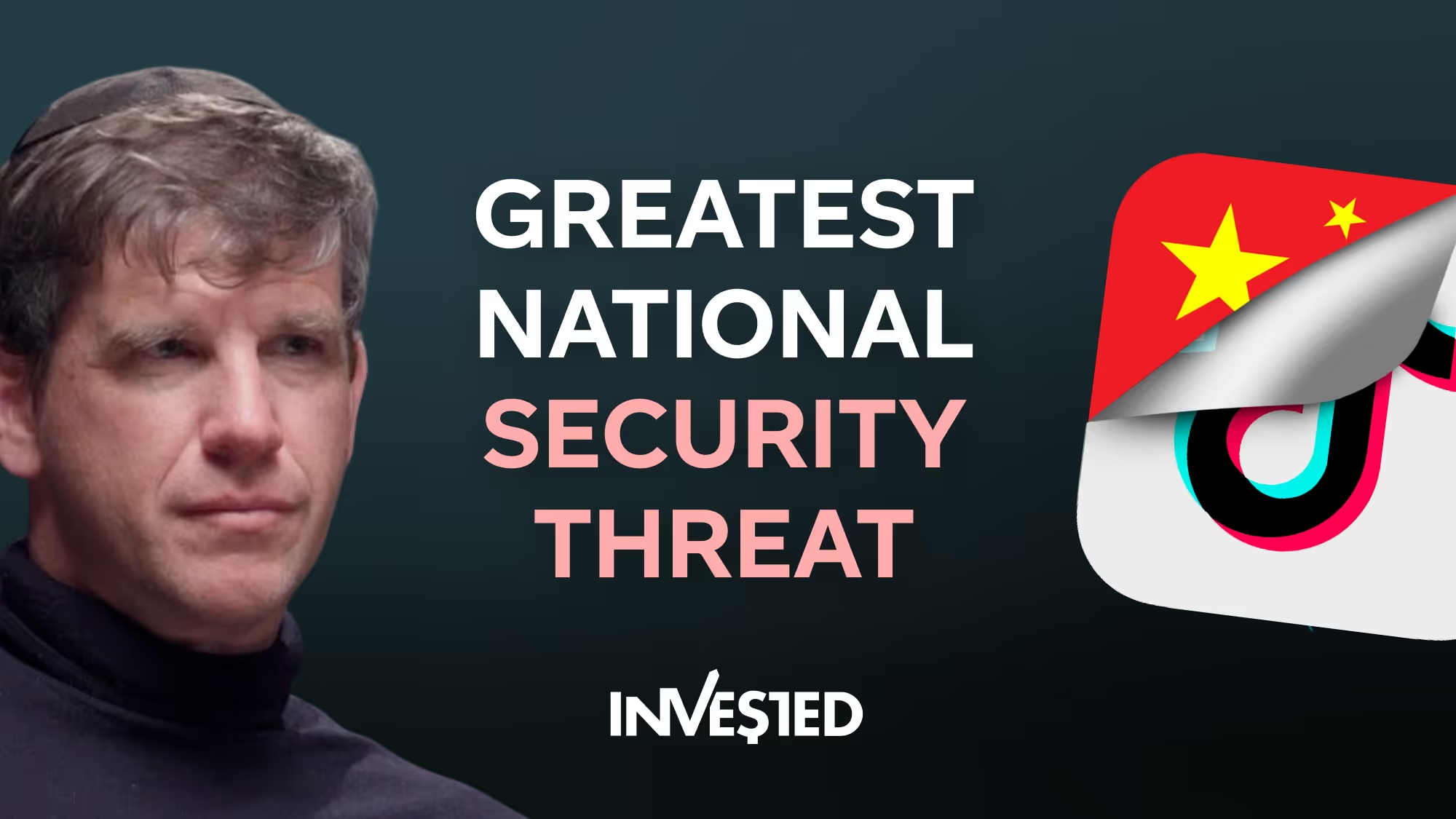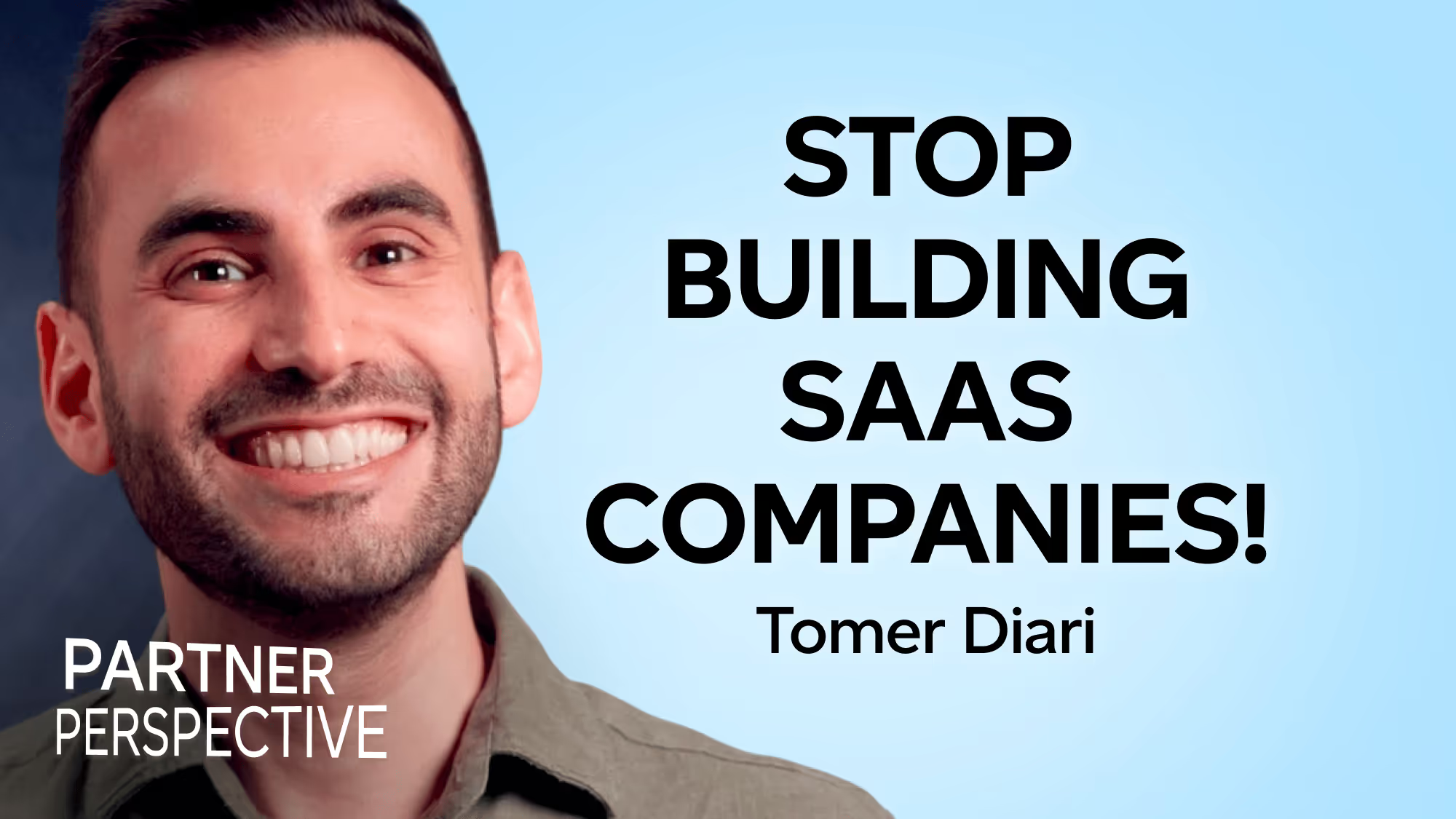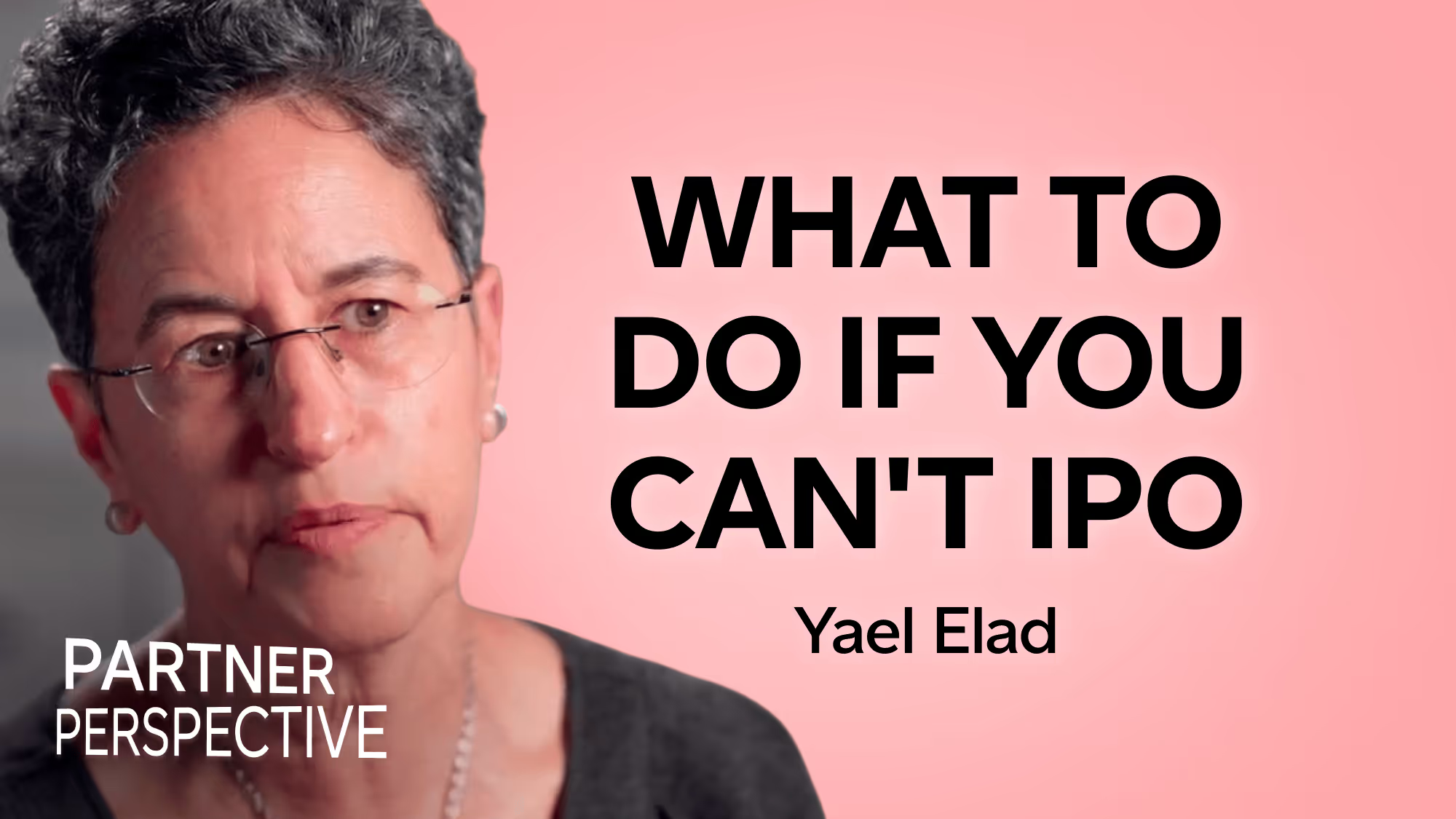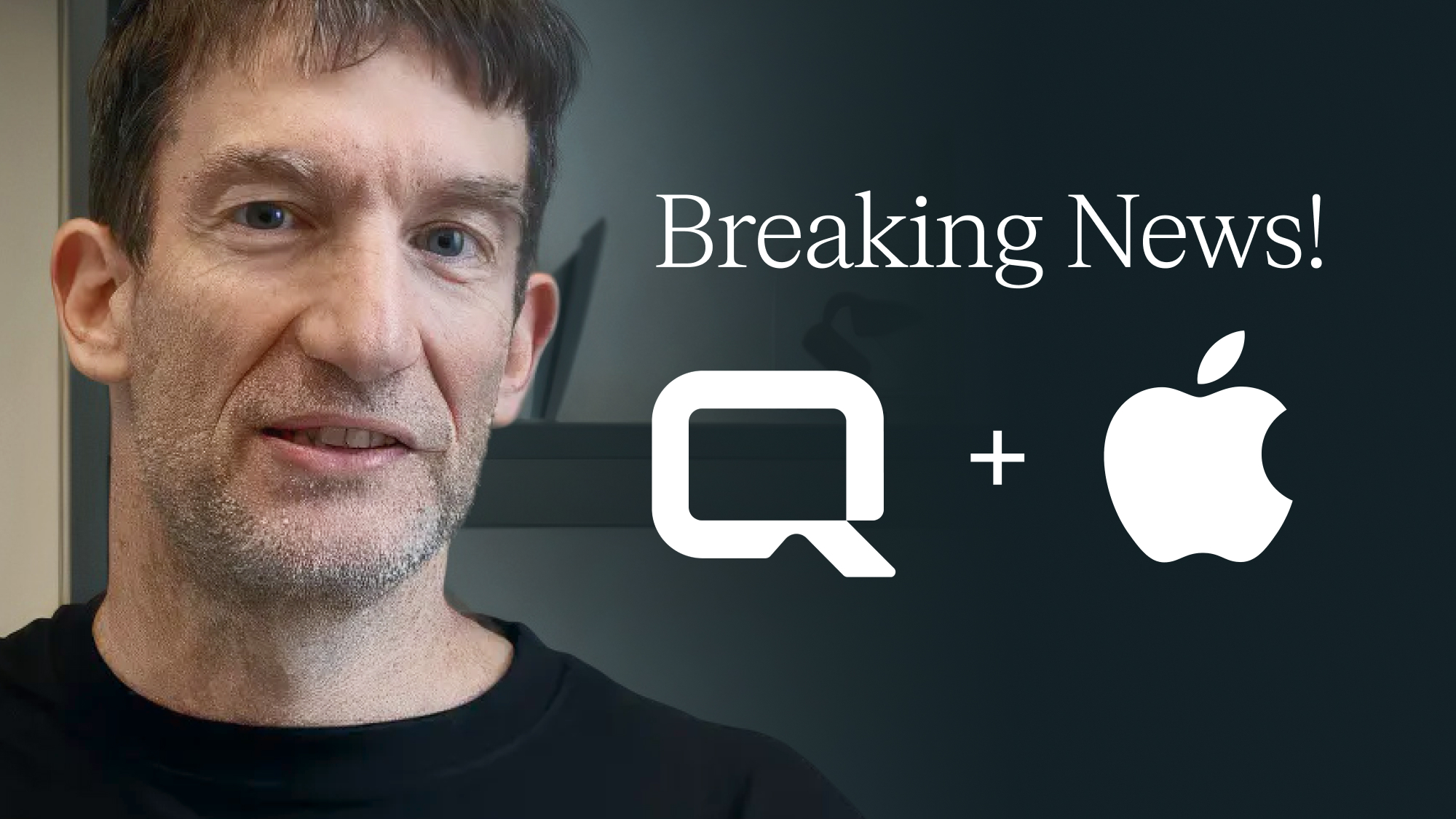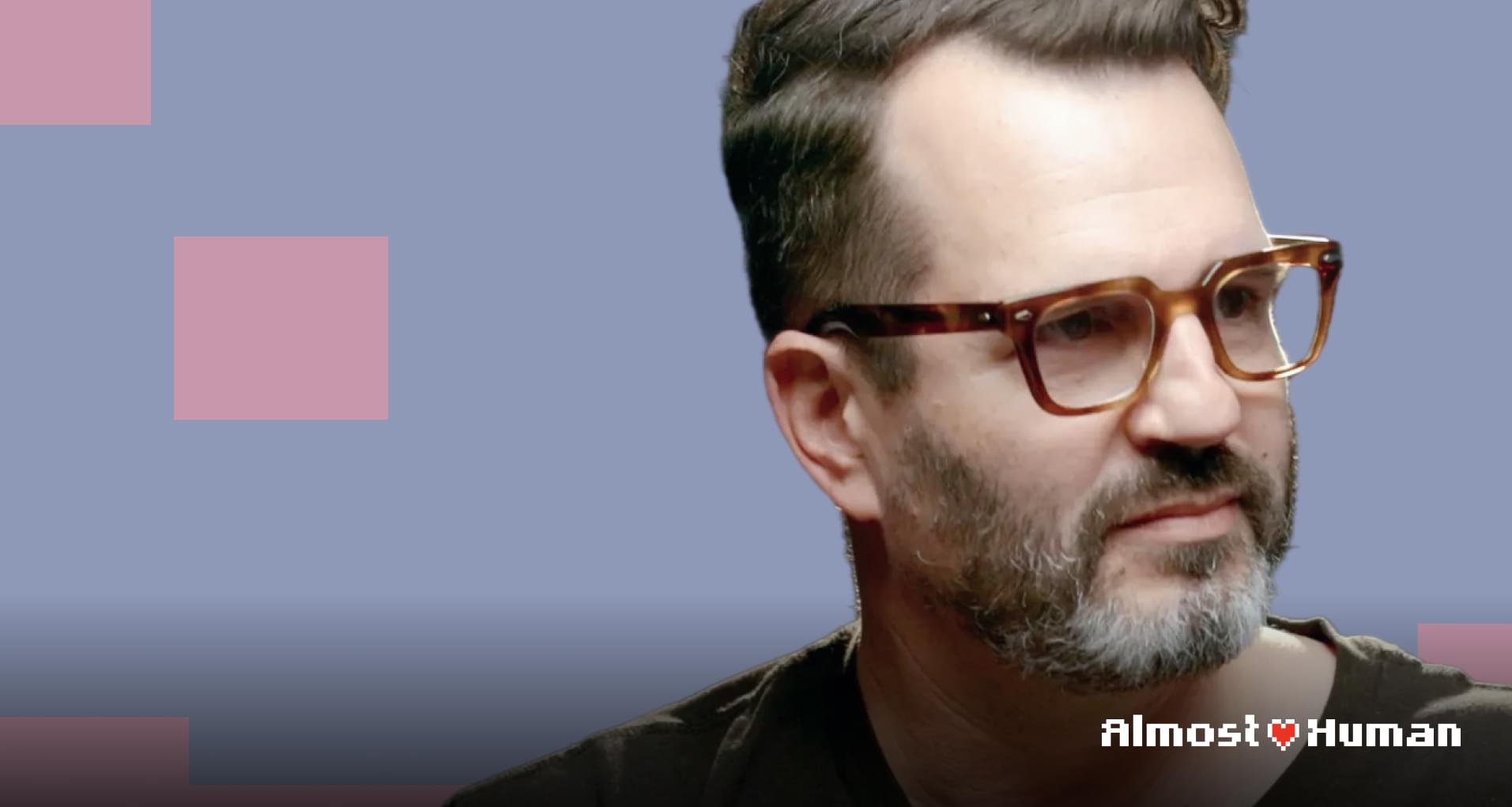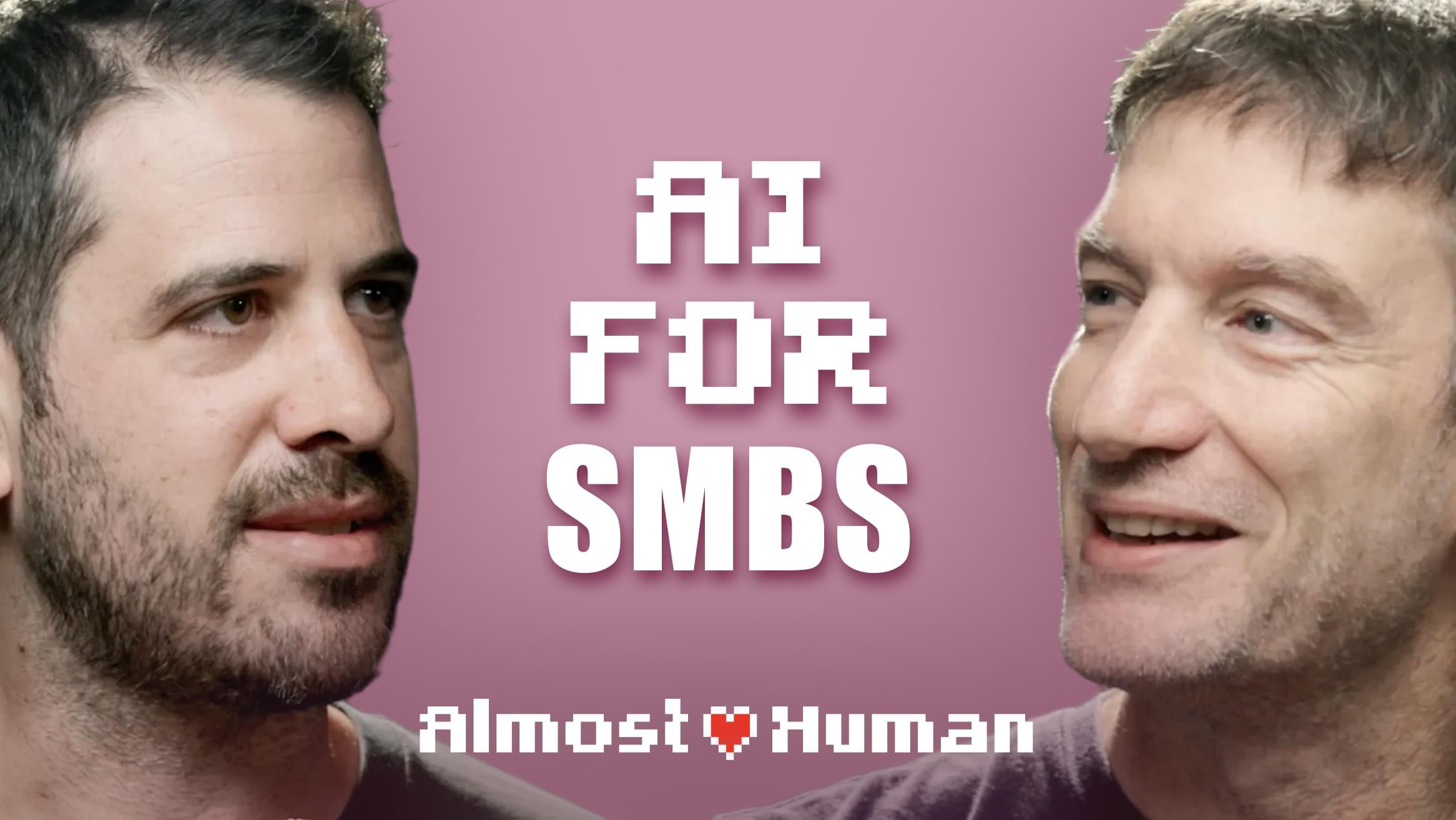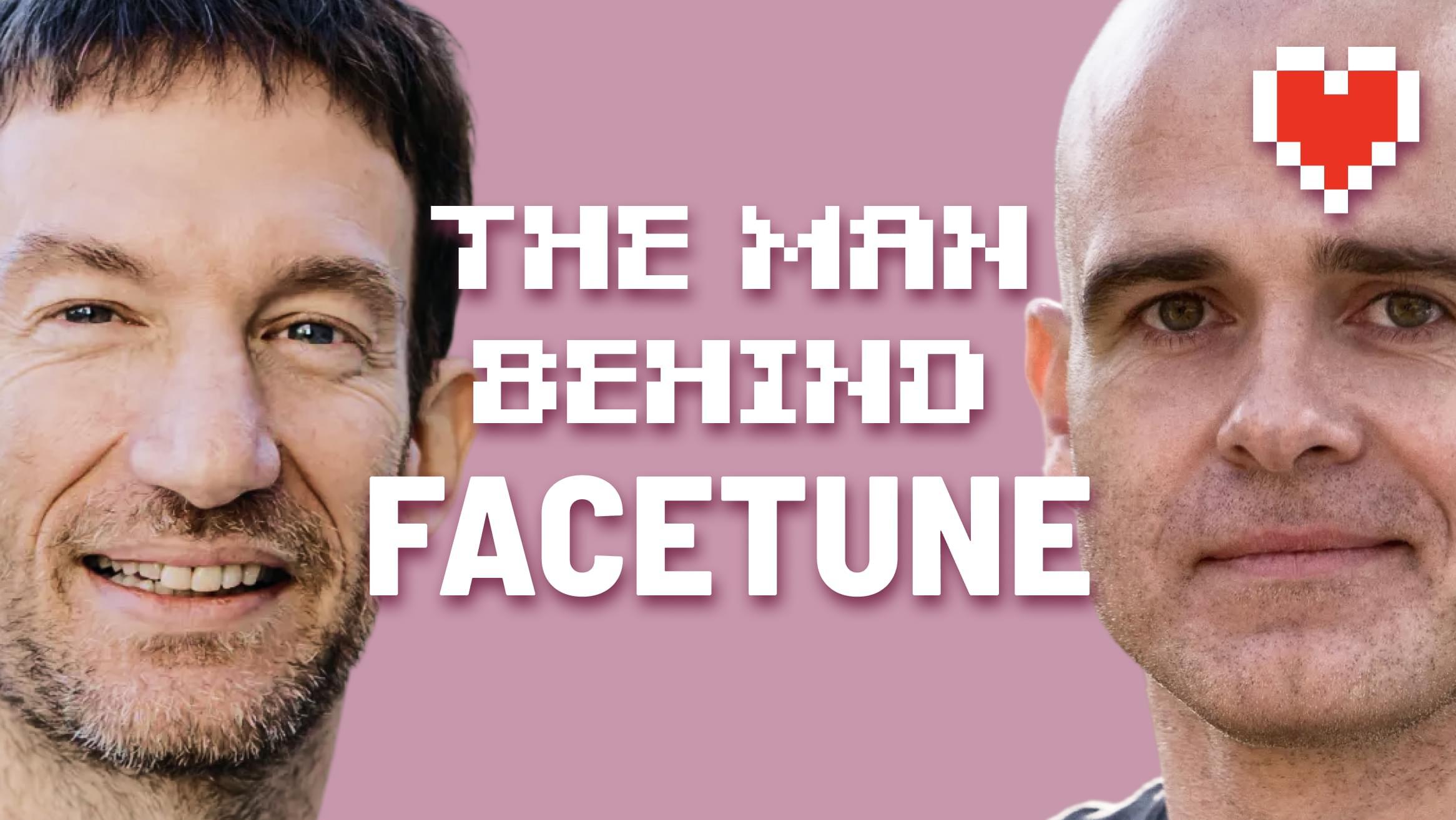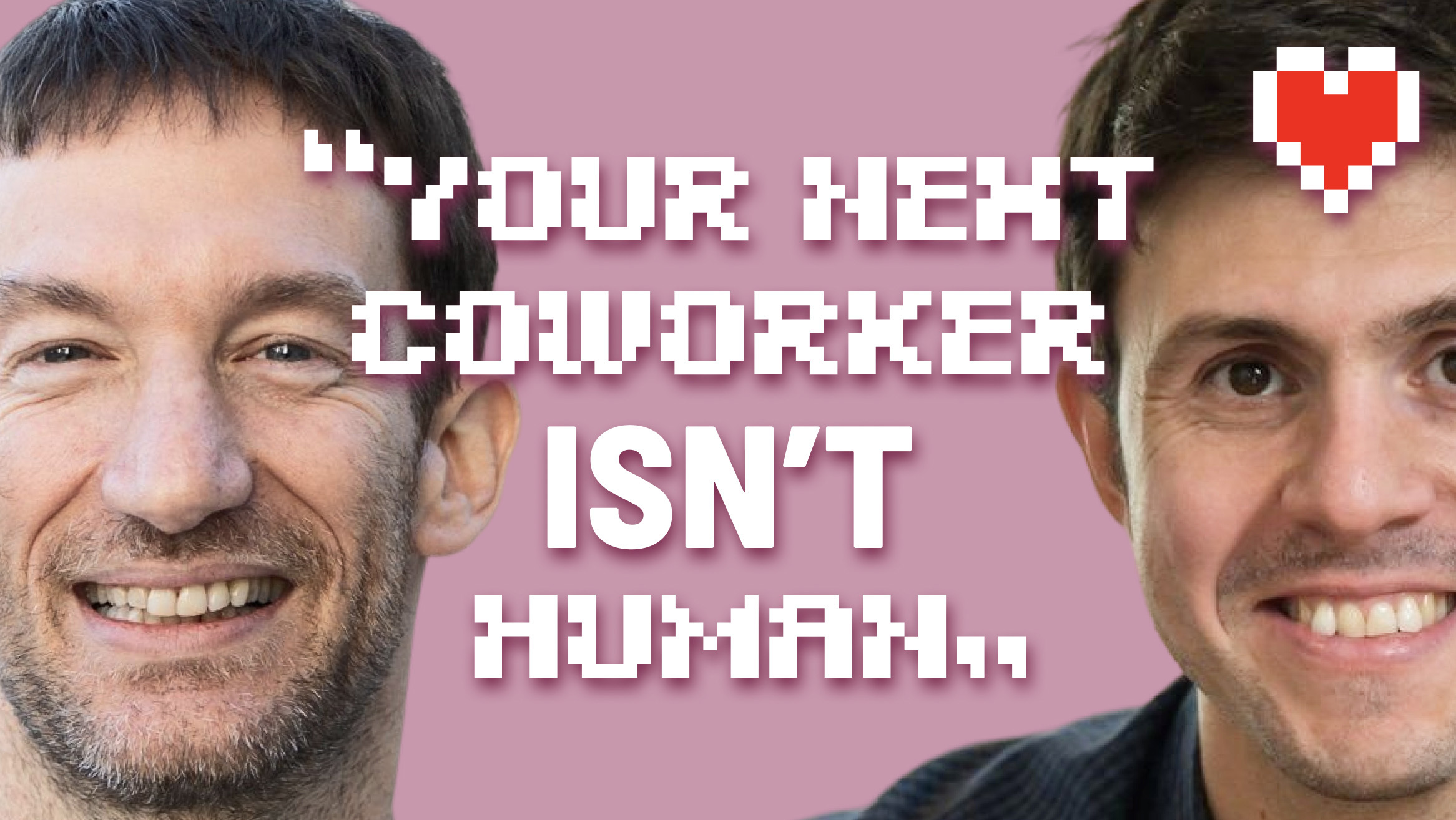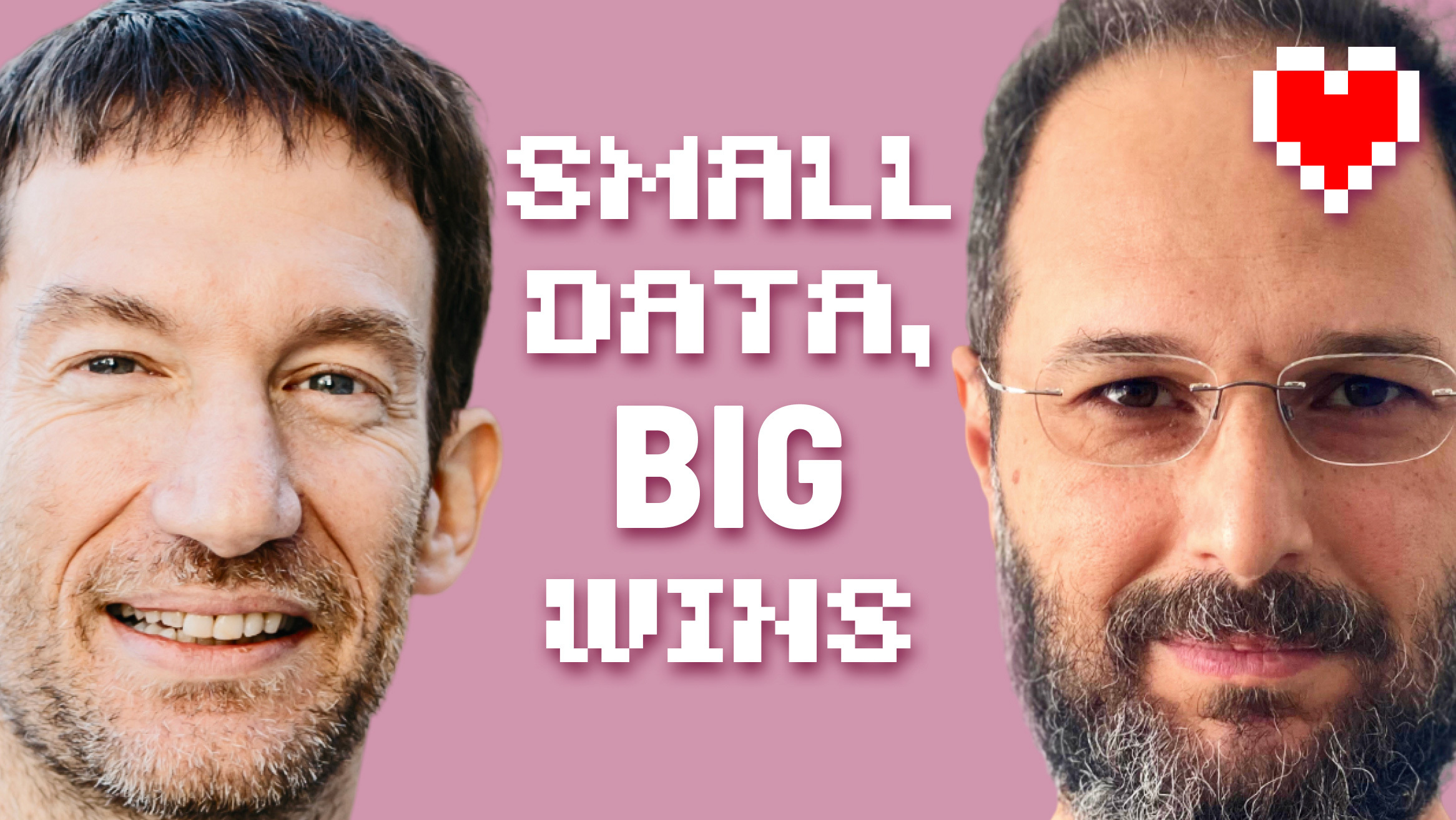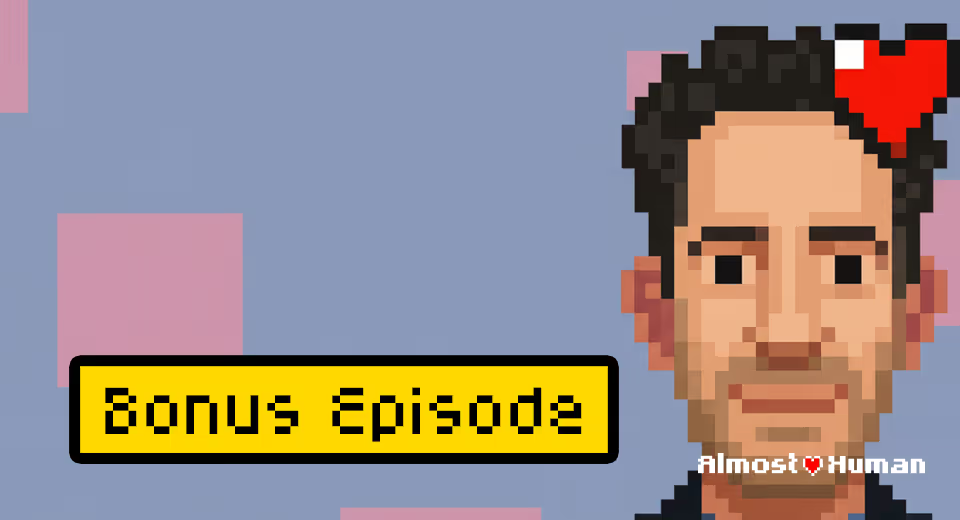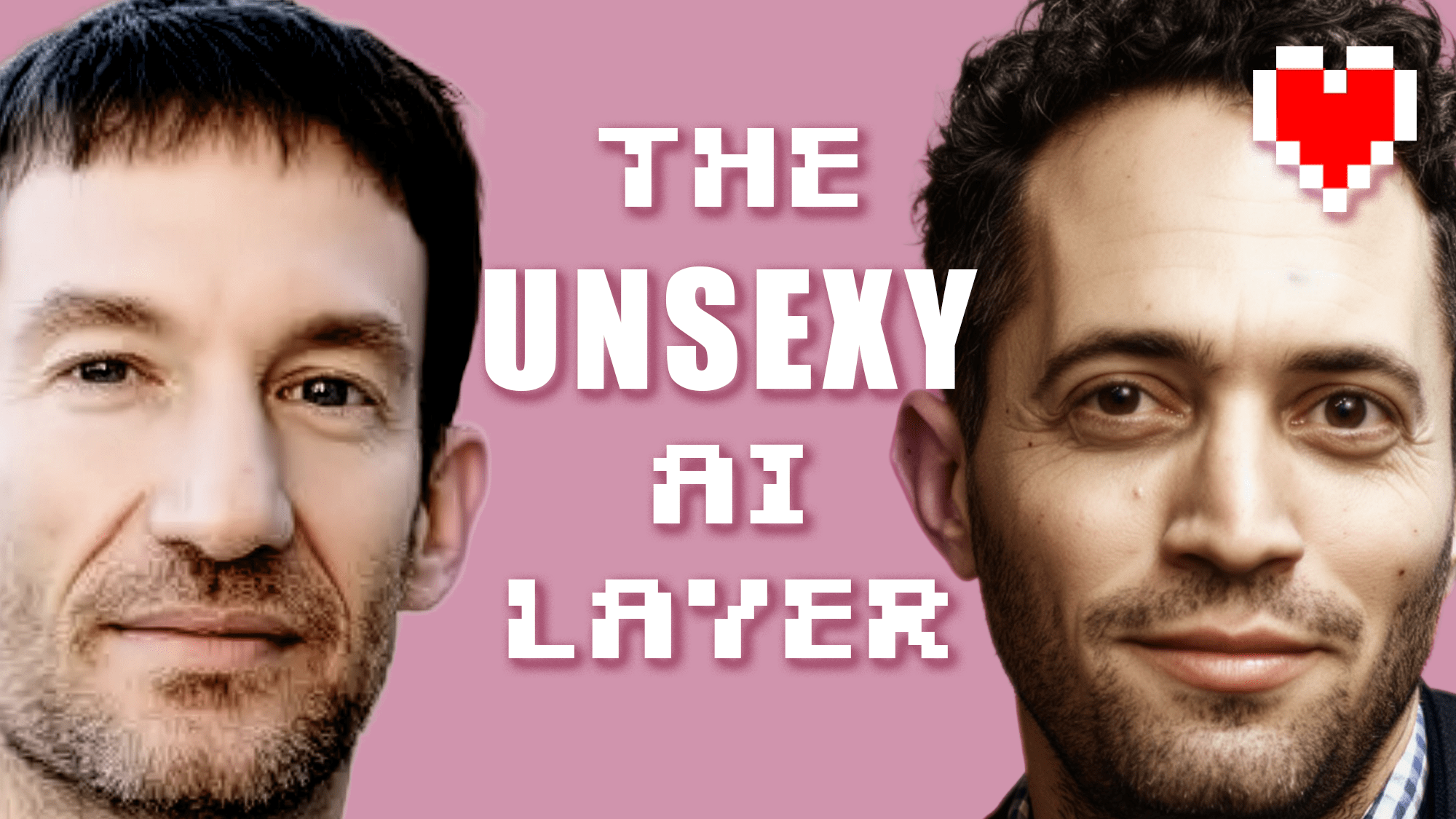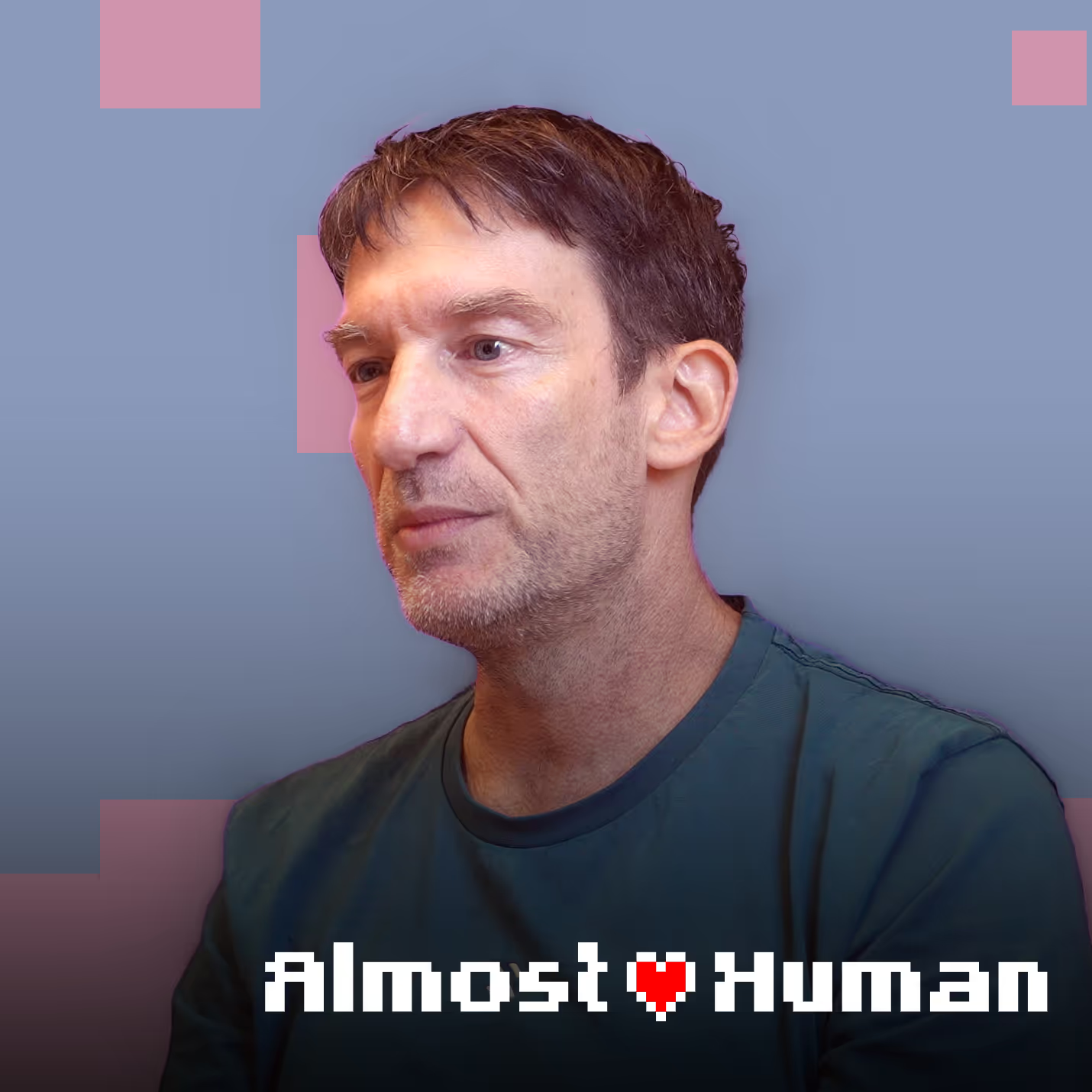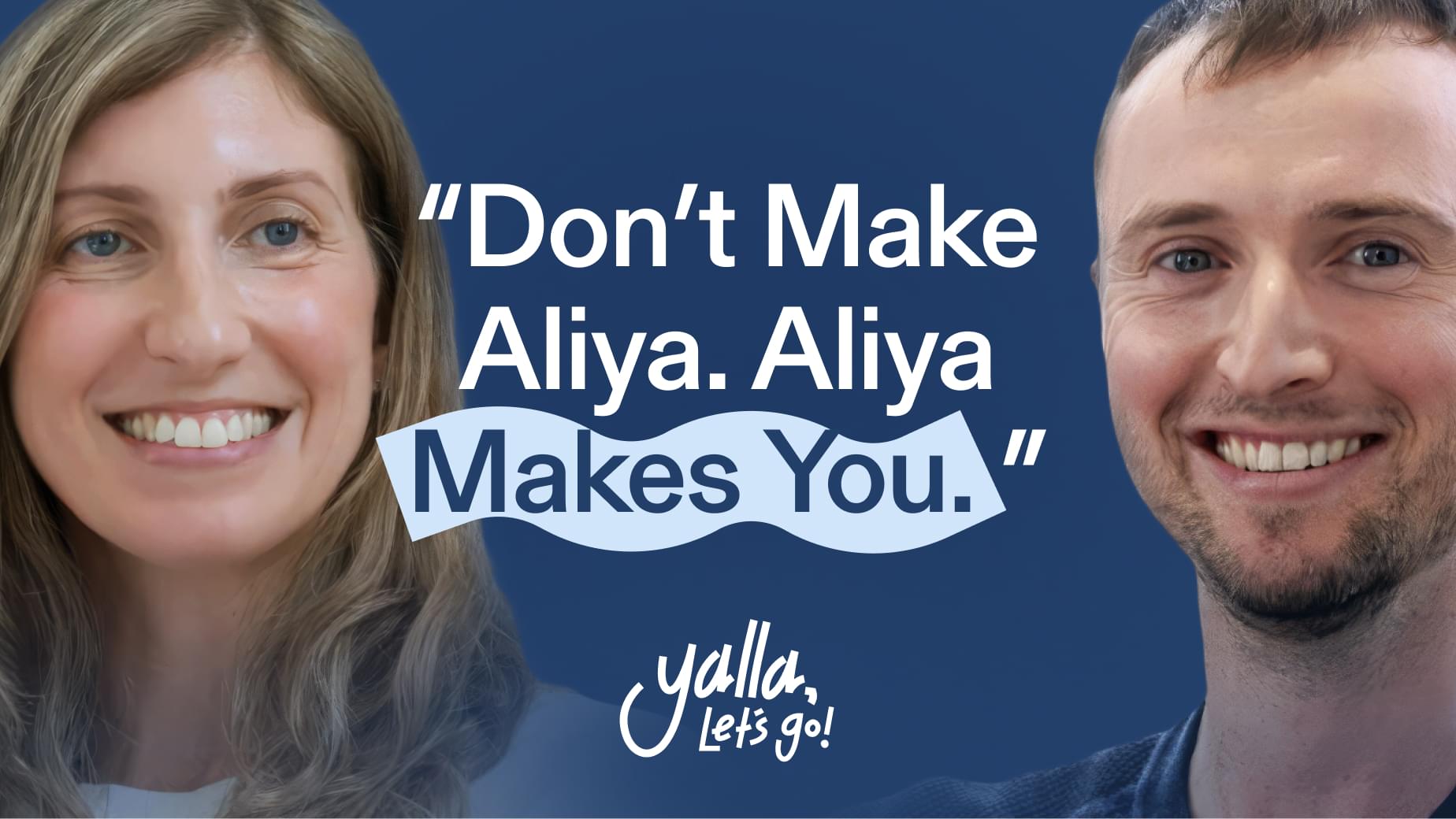Eli Ben-Sasson
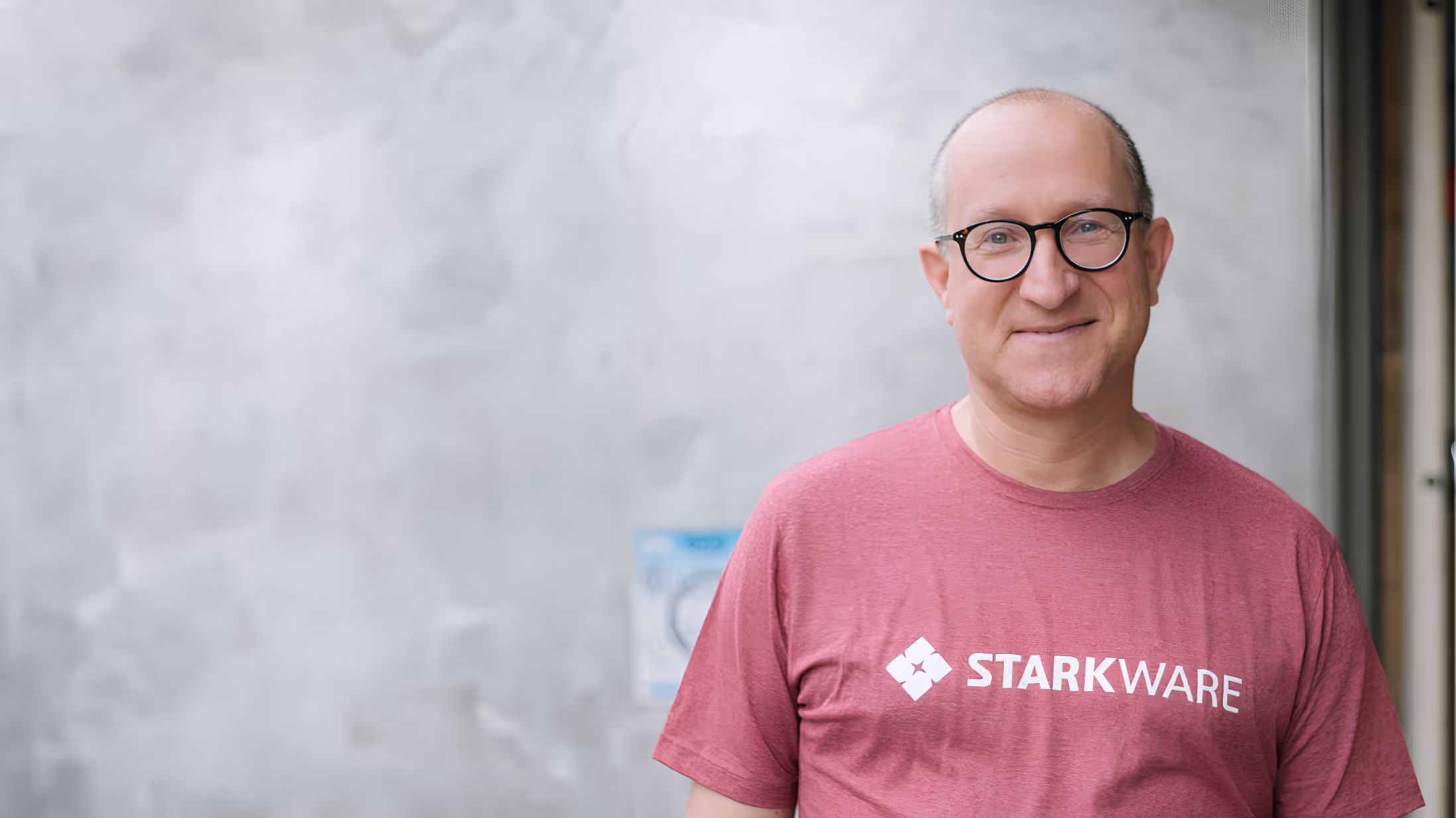


How can values create value? On this podcast, Michael Eisenberg talks with business leaders and venture capitalists to explore the values and purpose behind their businesses, the impact technology can have on humanity, and the humanity behind digitization.
Eli Ben-Sasson



How can values create value? On this podcast, Michael Eisenberg talks with business leaders and venture capitalists to explore the values and purpose behind their businesses, the impact technology can have on humanity, and the humanity behind digitization.
Eli Ben-Sasson



How can values create value? On this podcast, Michael Eisenberg talks with business leaders and venture capitalists to explore the values and purpose behind their businesses, the impact technology can have on humanity, and the humanity behind digitization.
Eli Ben-Sasson
Eli Ben-Sasson
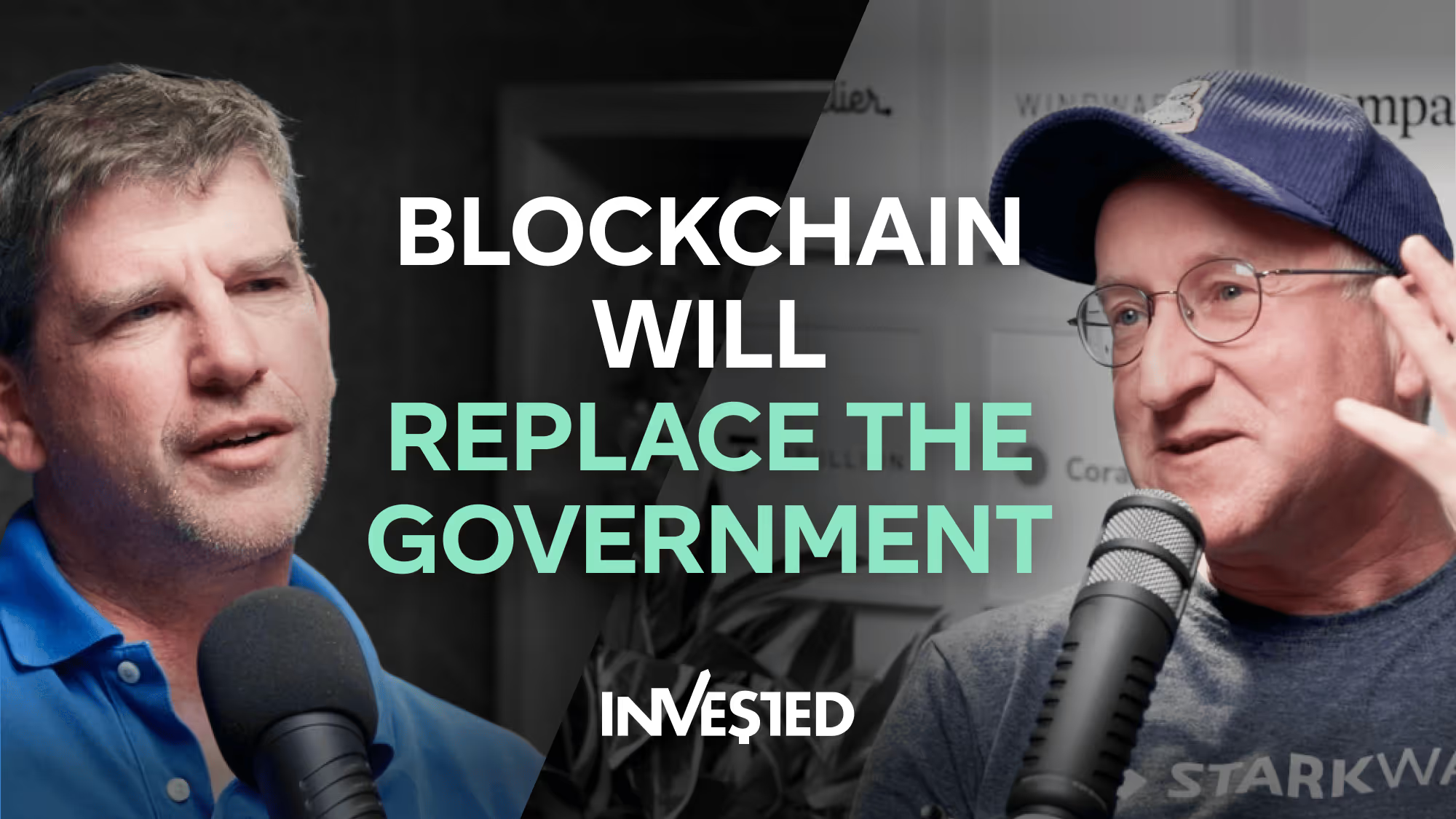
Eli Ben-Sasson
Eli Ben-Sasson
- [00:00:00] The Core Innovation of Blockchain
- [00:02:59] What Starkware Is and Why It Matters
- [00:05:59] Zero-Knowledge Proofs Made Simple
- [00:09:09] Building Trust and Integrity in Blockchain
- [00:11:51] Foundational Principles of Blockchain
- [00:15:02] Why Decentralization Matters
- [00:17:52] From Academia to Blockchain
- [00:21:09] Blockchain and the Future of Finance
- [00:23:50] Barriers to Blockchain Adoption
- [00:26:56] Israel’s Contribution to Cryptography
- [00:30:08] Blockchain and the Future of Governance
- [00:36:33] Rethinking Banking with Blockchain
- [00:40:05] What’s Broken in Financial Systems
- [00:42:13] Trust and Integrity in Transactions
- [00:47:51] Making Sense of the Crypto Cycle
- [00:51:05] Trust, Integrity, and What’s Next
- [00:54:36] Why Math Will Always Matter
- [01:01:27] Personal Reflections and Takeaways
On this episode of Invested, Michael hosts Eli Ben-Sasson, a co-founder and CEO of StarkWare, and Chairman of its Board of Directors. StarkWare is a Sequoia-backed startup whose latest fundraise was at a $8b valuation. StarkWare specializes in the productization of zero knowledge proofs via Starknet, a permissionless blockchain that scales both Ethereum and Bitcoin. Eli has been researching cryptographic and zero knowledge proofs of computational integrity ever since he received his Phd in Theoretical Computer Science from the Hebrew University in 2001. Eli is a co-inventor of the STARK, FRI and Zerocash protocols and a Founding Scientist of the Zcash Company. Over the years he held research positions at the Institute for Advanced Study at Princeton, Harvard and MIT, and, most recently, was a Professor of CS at Technion, which he left to co-found StarkWare.
Please rate this episode 5 stars wherever you stream your podcasts!
Eli Ben-Sasson / Michael (Mixed) (00:00)
You are th- Correct? Yes. What drew you to I fell in love. Very simple. What I view as the core innovation of Satoshi. What really is a blockchain? It is something that ultimately solves integrity. It is a way to know that the right thing is being done even when I'm not watching. He asked about my holdings. I do not hold any Trump coin. No Trump coin! No Trump coin. I know that this stack will conquer the world. I have no doubt about that. Like 100 % conviction. Nobody needs to trust us. Math is never breakable.
Michael Eisenberg (00:25)
Nobody needs to trust you.
Eli Ben-Sasson (00:29)
Cryptography is breakable. The closer you get to using pure math, the less breakable you are.
Michael Eisenberg (00:34)
Who's Satoshi? ⁓
Welcome back to invested. am thrilled to have Ellie Benson-Sason with us.
Eli Ben-Sasson (00:45)
Thank you Michael, thank you for having me here.
Michael Eisenberg (00:48)
Eli
is the co-founder and president of Starkware, which pioneered zero-knowledge proof technology, Starks, to scale blockchain infrastructure, enabling faster and more secure transactions on Ethereum and beyond. Eli is a professor in cryptography researcher. He's a former professor at the Technion in Haifa, Israel, which is like Israel's MIT, ⁓ specializing in theoretical computer science, cryptography, and computational complexity. He's the co-inventor of Starks.
played a key role in developing scalable transparent arguments of knowledge, that's the Stark's ⁓ acronym, a breakthrough in cryptographic proofs that enhances blockchain scalability and privacy. Boy, Ellie, that was a mouthful. Explain it to people in plain English.
Eli Ben-Sasson (01:30)
⁓ Which part?
Michael Eisenberg (01:32)
Why don't you tell us what Starkware does.
Eli Ben-Sasson (01:36)
Okay, so Starcore is a company located ⁓ headquartered in Israel. It has over 200 employees. So far, I guess this is well understood. No cryptographic proofs needed for that. Latest round valued it at $8 billion. And we've been at it for the past seven and a half years, scaling blockchains under the same assumptions as blockchain. So
Michael Eisenberg (01:46)
cryptographic proofs needed for that.
Eli Ben-Sasson (02:04)
Blockchains are great, but they're somewhat slow and you want to have them, you want them to have higher capacity and lower costs. And that's basically what Stark were ⁓ innovated on.
Michael Eisenberg (02:09)
And
And who buys StarCraft technology?
Eli Ben-Sasson (02:23)
So there are two products. The first one is a B2B product that has been used by and still used by a bunch of
Michael Eisenberg (02:29)
⁓
Eli Ben-Sasson (02:31)
gaming companies, ⁓ decentralized exchanges, and it is called StarkX. This product has been out there for the past five years or so and has settled more than $1.3 trillion of trades on Ethereum. So it's a B2B SaaS product called StarkX. And its consumers are then other businesses who are exchanges and gaming companies on blockchain. The second ⁓ product, which is newer,
is called Starknet and it is a little bit like Ethereum or like Bitcoin. It is a blockchain of itself. It's called a layer two, which means it settles onto Ethereum and then its consumers, I would say, are two kinds. There are the end users that use it for paying for their coffee through using credit cards or stuff like that that settle on top of Starknet. then there's the developers of apps, games, DeFi projects and stuff like that.
And why can't
Michael Eisenberg (03:29)
Can't
I build directly onto Ethereum? ⁓
Eli Ben-Sasson (03:32)
You can, but
each transaction is going to cost you a hundred to a thousand X more than it would cost you on starknet.
Michael Eisenberg (03:39)
And how does darknet reduce the cost of the transactions that would otherwise be on Ethereum?
Eli Ben-Sasson (03:43)
So that's where the magic or the math comes in. Okay, so how do you, maybe we should take a step back and explain why technologies like Bitcoin and Ethereum that were invented in 2008 and 2015 respectively have very low throughput, right? If you think of them as some computation platform, they allow very little computation to be run on them, right?
So famously, Bitcoin allows something like seven to 10 transactions per second at most, TPS, transactions per second. And Ethereum is like, I think, 20 to 30 transactions per second TPS. Whereas if you look at similar, let's say, payment systems, know, Visa or credit cards in the aughts and teens of 2000, they were processing already hundreds of thousands of transactions per second. So.
It's not that the technology didn't exist to process, let's say, 100,000 transactions per second when Bitcoin was invented. And certainly it's not that Satoshi didn't know this, right? So why did he build a technology, invent a technology that only works at 10 transactions per second? The reason is that the way blockchain works is very differently. It does not assume any centralized party that you trust and which could run a huge server, know, Visa MasterCard.
You want everyone to be able to participate in the protocol and observe and know everything that is going on using commonly available means like a laptop. And if you do that, suddenly the rate of transactions drop significantly. So this explains why common blockchains like Ethereum or Bitcoin, you don't have very high throughput and this leads to congestion and high costs. So we invented
Michael Eisenberg (05:24)
on.
Eli Ben-Sasson (05:36)
some math that you can use in order to scale these blockchains without any change to their assumptions. Nobody needs to trust us. That's true. Nobody needs to trust us. That's the important thing. And it is still is decentralized and there are no trust assumptions about whoever is operating this technology. ⁓ That's the main thing.
Michael Eisenberg (05:42)
Nobody needs to trust you.
Satoshi didn't know this. Taliq didn't know this.
Eli Ben-Sasson (05:59)
Satoshi,
okay, wait. So Satoshi in his latest writings did refer a little bit to ZK, zero knowledge proofs, and mostly for the privacy aspect. first use of proofs for scaling, which is what Starkware is famous for. So I'm proud to have, you know, been the first to point this out. And I pointed this out in the Bitcoin conference in San Jose in 2013. No one before that.
Michael Eisenberg (06:08)
Yeah.
⁓
Eli Ben-Sasson (06:29)
Realized that you can use within the blockchain world that you can use ZK proofs in order to scale block chains by then by 2013 Satoshi was already silent the core developers of a theory and people like Greg Maxwell and Mike Hearn and others and Gavin Andreessen at the time were very enthusiastic about ⁓ You know our technology for scaling Bitcoin and they immediately sort of embraced it, which is really why I ended up
Michael Eisenberg (06:48)
is
Eli Ben-Sasson (06:56)
moving from being a mathematician to a blockchain person. then, okay, so Vitalik, you asked about Satoshi and Vitalik. So Satoshi at that time was already silent. He spoke no more, but I'm pretty sure based on his previous writings, which loved the privacy aspects of ZK, I'm sure he would have supported Starks. Vitalik was back then a reporter for the Bitcoin magazine. And then he flew a few months later to Israel and he actually interviewed me
Michael Eisenberg (06:59)
⁓
Eli Ben-Sasson (07:25)
You know, sitting on humus at the Technion and I explained a lot of ZK to him. And I think he also loved it a lot. And Ethereum came out a year and a half later, it was still not ripe enough. So Vitalik certainly knows this from the start and is a very great supporter. He's our first investor in Starkware and he definitely supports ZK in general till this day.
Michael Eisenberg (07:32)
⁓ but when.
Why don't you just explain to the broader audience what zero knowledge proofs are?
Eli Ben-Sasson (07:53)
These proofs are means to an end. And the end is integrity. Integrity was beautifully defined by C.S. Lewis as integrity means doing the right thing even when no one is watching. So when you think about proofs, they are means to an
Michael Eisenberg (08:08)
favorite authors I just want to point out.
Eli Ben-Sasson (08:10)
I also, well, I like the Narnia, but like at some point it sort of deteriorates, the first few books. I did not read that one. Okay. I'll add it to my list. integrity means doing the right thing, even when no one is watching. Now I would like to, let's say, ask you to operate, let's say the payment system of Israel for a day and report at the end of the day to the world. What is the current state of accounts?
Michael Eisenberg (08:15)
letters is my favorite, but which one? Tape letters.
⁓
Eli Ben-Sasson (08:40)
But I would need to know that you're doing the right thing even when I'm not watching. So cryptographic proofs are a way to achieve exactly that. can, using cryptographic proofs, I can say the following thing. Please take ⁓ the payment system of Israel operated for a day. Please report to the world at the end of the day the state of accounts. But I also ask you to provide a proof, a cryptographic proof of this, sometimes called a ZK proof. The point is that
If you operate with integrity, you will be able to generate a proof. If you violate integrity, even with one single bit, let's say you add a one to your, or you add a bunch of zeros to your own ⁓ account in a way that you haven't received the money, you will not be able to ⁓ generate such a proof. And verifying the proof takes ⁓ five milliseconds on a smartphone. I can, all of the citizens of, let's say Israel,
could verify once a day on their smartphone that someone who they have no trust assumptions about operated all of their ⁓ payments with integrity. That's what you achieve.
Michael Eisenberg (09:48)
I once had a back and forth with Mark Andreessen years ago about blockchain as to whether it's a trusted network or a trustless network. I think it's trustless network. He thought it was a trusted network at the time. My point was actually the benefit is that it's trustless. I don't need to trust anybody. I can just kind of know. And that knowledge creates my trust even without having to trust you.
Eli Ben-Sasson (10:13)
Yes, I agree. Well, in the end, there is trust in certain assumptions. then, okay, if you think about the conventional financial world, we have trust assumptions about very particular individuals and institutions. We trust the regulators, we trust, you know, let's say the banks or the bankers and we trust their operation. Well, we assume this trust, right? ⁓ Now with blockchain, there's no particular individual or institution that you trust.
Michael Eisenberg (10:34)
know why these things are coming out. We'll come to that soon, but go ahead.
Eli Ben-Sasson (10:42)
You trust rather.
Michael Eisenberg (10:43)
Math.
Eli Ben-Sasson (10:47)
A combination of math and game theory. are three. ⁓ If you allow me, I'd like to present what I view as the core innovation of Satoshi. What really is a blockchain? So I think it is. It is something that also ultimately solves integrity. It is also a way to know that the right thing is being done, even when I'm not watching. So in this way, ZK proofs and blockchains actually complement each other because they are both two different solutions.
Michael Eisenberg (10:59)
So.
Eli Ben-Sasson (11:17)
to the same problem, the problem of integrity, knowing that the right thing is being done even when I'm not watching. Now, what blockchain does is it offers infrastructure for social constructs like money. Money is maybe the most important and fundamental social construct. It is something that has immense value only as long as there is both inherent integrity and perceived integrity. So,
Both it operates as it should, you you don't get to just print as much money as you want, you and I individually. I have money, it doesn't disappear ⁓ all of a sudden. I have full discretion over who I can pay my money to. Those are parts of the inherent integrity of money, what it means for it to be doing the right thing. But we also need to have perceived integrity, which is common knowledge. So I need to know that you know, that I know, that everyone knows that
Michael Eisenberg (11:51)
If I
need.
Eli Ben-Sasson (12:14)
you know, operates with integrity. Okay. So money is a social construct and blockchain is a new way to achieve social constructs. But it is very different from the conventional ways in which something like money was achieved. It has three core principles. The first is broadness, which means, or decentralization, which means this infrastructure benefits from having as many operators come in and be part of
of this infrastructure. The more the better. So, and there are no barriers to entry. Compare this to the banking system. You don't have this broadness.
Michael Eisenberg (12:55)
comparatively compared to the Fiat system, is unilateral completely.
Eli Ben-Sasson (12:59)
Yes, yes, yes, exactly. And the hierarchical, you know, you need to have a certain license in order to be a part of whichever payment network that you choose within Bitcoin, for instance, actually, the more nodes or users come in and attach to the network, the better it becomes, the more secure it becomes, the more integrity it has. So that's the first principle. The second amazing principle, which is maybe the most shocking and surprising is what I call incentivized.
integrity, which means the protocol defines a distribution of value in the form of mining fees and fees that go to block producers. And the reason it drives value to these parties is in order to have both inherent and perceived integrity so that everyone understands that if you have a Bitcoin, it doesn't disappear suddenly and that there's no double spend and that all the aspects of money
operate as they should. So that's the second amazing part. Again, it would be like the national bank of a country saying, we invite all citizens of the country to participate in the payment network. And in fact, we are going to mint coins and distribute them to the citizens as they produce services, which I think is a great idea, but just no country is doing it yet.
Michael Eisenberg (14:18)
By the way, just, open parenthesis, that's the inverse of a lot of these current UBI concepts. It's the universal basic income, which is don't contribute a thing, but take some dough.
Eli Ben-Sasson (14:26)
Yes. So
here it's a contribute and we will incentivize you in a way that enforces or achieves both inherent and perceived integrity. That everyone understands that the reason you're getting paid and that everyone is being paid is so that you, the whole system just has integrity.
Michael Eisenberg (14:45)
describe the blockchain incentive system as the inverse of what's gone on in progressive or liberal circles right now, which is in progressive or liberal circles what you have is, ⁓ I give you money because you have rights and in the blockchain system you get incentives because you take responsibility.
Eli Ben-Sasson (15:02)
Yes. Yes, I agree. You get paid in order to incentivize you to be citizen. Yes. Contribute to the whole integrity of the whole system. the third, so there's broadness, you know, everyone's invited to participate. There's incentivized integrity, which means everyone gets paid in order for everyone to agree that the system operates as it should. And the third one, which is very important is public verifiability, which means everyone using commonly available means can check that everything from the start,
till the very latest block state has been done with integrity. okay, so these are the three principles on which blockchains operate. If you want broadness, you want everyone to come in with their laptops. Okay, so you can't have like things that require massive compute. If you want public verifiability, you need to have things that can be easily verifiable even if someone comes in late. And for those reasons,
both Satoshi and Vitalik had to compromise on the scale. How many transactions do you process? Well, the math that we invented and then productized is something that allows you to check, again, in less than let's say one second, the full integrity of all of the blocks of Bitcoin from the genesis in 2008 till now. Something that will take you more than a week on a strong computer. You can verify a single stark proof.
of the whole integrity of the whole thing without any trust assumptions about anyone who produced this proof. So using this technology, we can amplify and scale blockchains by basically inviting anyone with compute capacity to contribute and advance the state of the system. No trust assumptions about that party. And you can still verify that everything they did, they did with integrity.
Michael Eisenberg (16:49)
So like you were a theoretical mathematician, correct? What drew you to the blockchain?
Eli Ben-Sasson (16:52)
Yes.
I fell in love. Very simple. When? ⁓ that moment? May 2013. I was, okay, I was doing a sabbatical at MIT at the time and I was already involved in implementing in code some of the theoretical work that I did. And I had no real good reason for doing it. The real reason was I received a grant from the European Research Council.
Michael Eisenberg (16:59)
Do you remember?
Eli Ben-Sasson (17:22)
1.7 million euros. And as a theoretician, there's only so many pencils and laptops that you can buy with, ⁓ with, you know, that amount of money. So I partnered with a few brilliant, you know, postdocs and researchers and students, and basically said, let's implement some of this stuff in code. No, no good, you know, end in mind, just thinking, well, we can publish some papers about it. So end of 2013, I was just about to return to Israel from my sabbatical.
And I gave talks, mostly in academic universities, speaking about what I was doing, like implementing in practice some of this theoretical math. And I know now in hindsight, so what I remember back in the time was people like being like groggy and like yawning and coming at the end and saying, this was very interesting. Like no questions asked. Okay. Years later, I heard that behind my back, people were saying,
What is this guy doing? Like, why is he wasting, you know, a pretty good mathematical career on trying to implement stuff that, that isn't practical and has no use case. And then I was going to speak at Stanford and Berkeley, and I learned that there is a Bitcoin conference in San Jose. So I said, okay, I'll try to apply for it. And I wrote to some of the organizers and I said, I want to present this academic stuff there. And.
Gladly they agreed, so they said, come and speak. And first of all, was the most electrifying conference I ever attended. There was like magic in the air. There was this messianic feeling that Bitcoin is changing the world for the better. So it was very captivating. And then I gave the talk. Not many people attended, but a lot of the core devs that were there
came to me later and said like, this was the most important talk of the conference.
Michael Eisenberg (19:24)
And.
Eli Ben-Sasson (19:26)
Where's the code? I said, what do mean? Why do you need the code? And they say, okay, here are like five things we're going to do with it tomorrow. And I said to them, no, you're like, you know, you're kidding with me. You're joking. Like you're not going to really use it. said, no, no, we really need this. And this sort of stark contrast between the academic world where people were basically yawning and saying, we don't know what to do with this. And then the blockchain world where the developers are saying,
Give us the code tomorrow and here are five things we need to do with it.
Michael Eisenberg (20:06)
Tomer is like your co-founder think an electric coin company. Is that like a precursor to Starkware?
Eli Ben-Sasson (20:11)
Okay. So what happened was at that conference, there was another presentation using, trying to solve privacy, ⁓ using some construction related to RSA accumulators, which is a lesser technology in terms of power than, than ZK. And we were working. Iran was part of my team. There were a bunch of us. So we partnered with that other team. So there was a team from John Hopkins and there was our team. So four of us.
Michael Eisenberg (20:18)
Bye.
Eli Ben-Sasson (20:39)
partnered with three from the John Hopkins team. And we wrote this academic paper called Zero Cash, which shows how you can turn Bitcoin into something in which both the payer, the payee, and the amount being paid are completely shielded, as opposed to Bitcoin, where you can see like who pays whom. So we published this academic paper. And then we jointly, the seven scientists, we co-founded together with a very strong team of engineers led by
Zuko. So it was like, you know, destiny pre-wrote this Zuko.
Wilcox Hearn was not born Zuko. He had a different name, but years before he changed it because of some, think, a sci-fi character or comics character to Zuko. But then he ended up being the CEO, co-founder of the first company to commercialize ZK proofs. So I think it was like written in destiny. Anyways.
Michael Eisenberg (21:38)
Sometimes science fiction is stranger or more accurate than reality.
Eli Ben-Sasson (21:43)
Yeah,
I think you know there's a coincidence by the way, you know recently I saw that What was used to call micro strategy, but now called strategy right came out with a new ticker called STRK Yeah, so STRK is also the stark net ticker the stark net token ticker and I think there's also destiny there because like stark net and Bitcoin are meant to go together
Michael Eisenberg (22:07)
actually he's front running you probably. And taking your ticker before you get published. That's his gotta get paid. Michael Saylor's gotta get paid. Wait, before I go back to questions, if you already brought up Michael's strategy and Michael Saylor, what do you think about what he's doing? Like selling stock, borrowing money to buy Bitcoin.
Eli Ben-Sasson (22:11)
You know what? No,
Yeah.
I think it's brilliant. So I don't know about like, let's say the sort of financial soundness of whatever is going on. just, it's not my field, but I think right now one of the biggest trends is that TradFi, traditional finance and institutions want exposure to a whole bunch of things in crypto. And I think they're trying to come at every possible angle. So part of it is things like Bitcoin ETF and so on. And
I think he innovated a brilliant thing, which is to say, I will give the world more exposure to both Bitcoin just directly through buying a stock. think that's, that's actually great. I hope he's doing it in a responsible way, right? That basically sort of converts directly into Bitcoin. But, ⁓ and if he does, so I think it's a great idea that should be.
Michael Eisenberg (23:18)
I understand between the lines that you're long-term bullish on Bitcoin.
Eli Ben-Sasson (23:22)
I am very long-term Bitcoin bullish. I'm Ethereum bullish. I'm starknet bullish. I'm Zcash bullish. I'm bullish on lot of innovative things that are true to the values of decentralization, which not all projects in blockchain world are.
Michael Eisenberg (23:38)
I'm gonna come back to that in a second. What do you own your personal portfolio?
Eli Ben-Sasson (23:43)
I prefer not to go into too much detail.
Michael Eisenberg (23:46)
Can I ask you if you own Bitcoin? You prefer not to? Well, I am bullish on Bitcoin. So, Iran Tomer, who is your co-founder, said, ask you this kind of journey from theoretical academic guy to someone serving actually a developer community and actual customers. What's that been like?
Eli Ben-Sasson (23:50)
You know, bullish on Bitcoin.
I love every moment of it. Why?
Michael Eisenberg (24:16)
Customers, what a pain in the neck.
Eli Ben-Sasson (24:22)
My journey has been pure pleasure. And the number one reason is just my co-founder and my team and I just enjoy. So I love the academic work, but the academic work is very solitary and very individualistic, which is fine.
Michael Eisenberg (24:40)
And,
Eli Ben-Sasson (24:43)
had the honor and pleasure of co-founding Starkware with a close friend of mine for more than 35 years, Uri Kolodny, ⁓ who's a brilliant entrepreneur and I think he's going to go on and do other brilliant things, not necessarily in blockchain. He did enough in the blockchain world.
Michael Eisenberg (25:00)
and.
Eli Ben-Sasson (25:03)
So he was my main co-founder and I just love the guy and it was a pure pleasure working with him for the six years that he was the CEO of Starkware. then we tapped into the Israeli network of, first of all, friends and associates, and we managed to attract a team of people that I just dearly love and respect. So it's a joy for me to listen to them, be corrected by them.
As opposed to the academic world where it's all about you showing your brilliance. Here, I think my role is much more listening to others and saying, know, maybe re re gurgitating what they say and saying, okay, this is important. This is not. And I just really enjoy the teamwork. So I don't, I'm not, and I have a thick skin. I'd say I'm not bothered by the, uh, know, customer stuff. so, mean, you know, yes, I enjoyed working with, uh,
Michael Eisenberg (25:58)
customers.
Eli Ben-Sasson (26:02)
I enjoy the blockchain world and ecosystem and I.
Michael Eisenberg (26:07)
really, I feel.
Eli Ben-Sasson (26:09)
really fortunate to have such a great team of people to work with.
Michael Eisenberg (26:15)
What's
kind of core to creating the market pull for Starkware? What did you do specifically there?
Eli Ben-Sasson (26:22)
I would say the innovative technology and understanding, like staying true to it and understanding what is its core capabilities and following that. So these cryptographic proofs, can offer privacy, which is ZK, but they can offer also scale. early on, so with Zcash, we went after the privacy aspect, but with StarCore, actually went fully on the scaling thing and we stayed true to the technology.
And so I'll give an example. We decided to ⁓ do a programming language in virtual machine, even though it's very hard. It's like boiling the ocean, but we did it because we understood that you will get the best efficiency in terms of proofs and safety. And ⁓ so I would say the core to the success is just staying very true to the technology and its potential.
Michael Eisenberg (26:56)
build a new
What do you think it is, by the way, about Israel? RSA came out of Israel. ⁓ Starkware came out of Israel. There's a bunch of crypto activity going on here. There's actually a lot of work also in payments and risk management also. What is it about Israel that is able to kind of get into the guts of cryptography and the financial system, other than the obvious kind of out of the military?
Eli Ben-Sasson (27:39)
So I think, ⁓ well first of all Israel is like a superpower in theoretical computer science and also in math, like way over its ⁓ population size. And I would say that number one is if you look at the other STEM sciences, ⁓ things that are math but also computer science, they require very, very few resources, especially if you talk about like theoretical stuff, And hence, right, if you go to...
Experimental biology or physics right you need huge events investments in infrastructure in order to be top-notch With math and theoretical computer science, which is a branch of math. You don't need that you Right, you need computers or pads of paper. So then just the concentration of brain power and I think the cultural, you know Jewish affinity to ⁓ learning and respect like
You know, the typical Jewish mom wants her kid to be a professor or a rabbi, right? Not necessarily a baseball player, right? So I think that sort of, and this has been going on for generations. So I think the combination of just the cultural affinity to study and the lack of barriers in the form of infrastructure needed led to this thing.
Michael Eisenberg (28:59)
So ⁓ my friend, hope you agree for me to call my friend Balaji Srinivasan. probably.
Eli Ben-Sasson (29:07)
He's an advisor to Starquaries. Yes. Amazing.
Michael Eisenberg (29:09)
and an incredible guy,
and one of the greatest thinkers, I think, of our time. I spent a lot of time on this issue you mentioned about three minutes ago, ⁓ true decentralization versus, it's called fake decentralization. Most of our institutions today, which are losing trust rapidly, are centralized. Decentralization, read Bitcoin, Ethereum, ⁓
Eli Ben-Sasson (29:14)
I agree.
Yes.
Michael Eisenberg (29:39)
and the, let's call them nascent ⁓ mechanisms that Balaji is working on, ⁓ are trying to effectively create these trustless environments. They're environments that don't require trust, but promote integrity because of mathematical proofs. I'd like you to try to address, so blockchain has been good for a small number of applications.
It's slowly growing in the financial world right now, particularly around payments using stable coins. I guess the topic we'll come back to soon. It hasn't actually found its way into what I would call mainstream adoption by a long shot. Maybe it's slowly becoming a mainstream investable instrument, but definitely not mainstream adoption. So the philosophy behind it, which is a decentralization with Trump centralization and recreate trust in a decentralized environment, is far from being proven. And societal structures,
actually don't support decentralization. If anything, I'd argue that in this era of extreme information prevalence, we're headed more to authoritarianism, you know, that's the Chinese approach to massive information flow, than to decentralization. How does this transition happen? How does it make it out of the world of theoretical math and now a little bit blockchain to our real world environment? How does this affect
Eli Ben-Sasson (30:54)
Yes, free. Yes.
Michael Eisenberg (31:06)
society and humanity going forward. know those are big questions, but I'll be
Eli Ben-Sasson (31:09)
huge question, but I'm deeply interested in it. First of all, there's a parallel between ⁓ governance systems and like what's happening in the blockchain world. Right. Churchill famously said, right. Democracy is a shitty, maybe didn't use that word, but there's a, as a very lousy governance system. It's only advantage is that it is better than any other, ⁓ mechanism. Yeah. So, ⁓ dictatorships.
Michael Eisenberg (31:32)
to battle turnips.
Eli Ben-Sasson (31:39)
are very efficient. Dictatorships being centralized, know, governance systems are very, very efficient. And it's actually quite a miracle that we live in an era where there are some democracies, as we all know, democracies are very fragile. And if you look historically, they have been short-lived, you know, both Greece policies and, you know, even in the Roman Empire, right, there was some sort of a republic initially that then
So, and we all wonder like, will democracy survive? And I think a similar parallel is with respect to blockchain, right? There could be, just to make it very clear, there could be two end cases for, well, three end cases for blockchain. One is that it's just no one, you know, everyone leaves it, but let's assume it still stays around. It could be that it just becomes a new financial rails for centralized systems, meaning that someday instead of using things like Swift or whatever protocols the banking system is using today,
which I understand a lot of the code is written in cobalt from the 1970s. That thing is thrown, but same banks operate the same system. Just they use solidity and smart contracts, right? That's one end state of crypto, which I think would be very, very sad. And in particular, if I have a crystal ball saying this is the end game for it, ⁓ I don't want to, you I want to leave tomorrow. The other one, which is very tenuous and fraught. And I think Balaji also is fighting for it and many others.
is a world where you have something that is more akin to democracy. You have that the real value proposition of crypto is not new financial rails for the traditional system, but it is something that empowers individuals in small societies in a way that is akin to democracy and gives them more power. And it is just like democracies. It is going to be very fraught, very fragile, very hard to maintain. We'll always be under constant threat of centralization because centralized things are just more efficient.
Michael Eisenberg (33:31)
and
Eli Ben-Sasson (33:37)
operationally, just like a dictatorship can get things done like that. Whereas in democracy, have, know, balances and powers, things are very slow. So I don't know what will be the end game. I am definitely trying. Push for the true decentralization and that value proposition and many in biology is of course, one of the leaders of this, but there are many, many others. ⁓ And I agree with you that we have not yet found true product market fit for true decentralization.
Michael Eisenberg (33:52)
to.
Those are hard to understand, right? And it's hard to make something have wide product market fit when it's just hard to understand.
Eli Ben-Sasson (34:14)
Right. There are three challenges, I think, for mass adoption. One is scale. The second is UX and the third is regulation. So I think Trump entering definitely helps a lot with the regulatory barriers. ⁓
Michael Eisenberg (34:30)
specifically
appointing David Sachs to be kind of a crypto czar.
Eli Ben-Sasson (34:33)
that, but even more generally, you know, the choke point 2.0 operation. I'm appointing David's acts, ⁓ you know, replacing Gary Gensler with a pro crypto SCC. Thank God for that. Stopping all of the actually prosecutions and investigations, stopping to instruct the banking, the U S banking system to bar crypto and, know, stopping to fight them and actually being pro.
Michael Eisenberg (34:38)
Nah ⁓
God for that.
Eli Ben-Sasson (34:57)
So I think the regulatory thing, we have at least for four years, very good opportunity to improve things. And then the scale in UX. So scale, think things like Starknet and, know, ZK proofs help. And then UX is also improving all the time. ⁓ Those are the three main barriers for crypto adoption. But I agree that it's hard to convince, just like democracy is a bit hard to explain, like, ⁓ why is it good? And often people are complaining, like, you know, wouldn't we be better off?
in a world where things are more centralized and, ⁓ but, ⁓ don't know.
Michael Eisenberg (35:32)
If you're the prime minister of Israel today, Israel's had a hard time getting its hand around crypto. I've been involved in these efforts. You've been involved in these efforts. It's been a real struggle with the bureaucracy. Like you said, centralization would probably help on this, but ⁓ making the sausage is tough. ⁓ What would you do? You'd want Israel to be at the forefront of this, assume. What would you do? Be very specific.
Eli Ben-Sasson (35:33)
Yes.
So realistically, small steps that are easy to achieve, I actually could see politicians doing them, are things like, first of all, ⁓ making sure that there's no sort of banking barriers in Israel. A lot of crypto companies still face problems, or even citizens, accepting and dealing with crypto. So that's one. You could have things like tax benefits that would help teams that decide to launch companies in Israel do so.
⁓ things that other countries are doing, you know, capital gains tax and stuff. So taxation is another like real good driver.
Michael Eisenberg (36:33)
⁓ those
Eli Ben-Sasson (36:34)
would
be two things ⁓ that I would do. It's like, ⁓ you know, helping the banking system accept crypto and taxation. Now the more ambitious thing would be, but it's not so realistic, would be to actually a nation state based integrity web or a blockchain. Well, I just like to replace the blockchain, which is like a chain of blocks and is a very technical term.
Michael Eisenberg (36:50)
have
What does that mean?
Eli Ben-Sasson (37:04)
term coming from Bitcoin with something that I think more correctly describes what it delivers, which is just like the World Wide Web is this protocol that gives you information, access to information. think blockchains actually give you a web of integrity, right? A lot of nodes that are working together, not to give you information, but to give you integrity so that you know that the right thing is being done when you're not watching. So I would like, this is the ambitious plan.
I would like to see a world in which you have, if you take like the national currency of Israel, right? The shekel. I would like a world where instead of the Bank of Israel minting new tokens and giving them mostly to banks or giving authorization to banks to mint new tokens. I would like a world in which every citizen gets, let's say from the, ⁓ from the state. The only thing it gets is like this cryptographic.
key that says, let's say, know, Michael has the key one, two, three, four, Ellie has the key five, six, seven, eight. And now we can participate in operating this network. This will be the network of payments and economic activity for the state of Israel. And minting will go actually to those offering services to this network and all citizens are invited. So I would like a blocked, I, I can easily describe a blockchain.
It is like Bitcoin, let's say limited to a nation state in which all citizens are part of it and it replaces and is better than the current banking system.
Michael Eisenberg (38:34)
the, ⁓ just
so people understand what are the services that an average citizen can offer to the blockchain.
Eli Ben-Sasson (38:41)
running
a computer with software. what this computer will do, will be processing transactions and updating the state of all of the accounts of all...
Michael Eisenberg (38:51)
Just buy a computer and let it run and operate things.
Eli Ben-Sasson (38:53)
already
have a computer, right? Most of the citizens have a computer you can opt into and it's probably connected to the internet. You can opt into offering services by just downloading software and running it. But by doing so, you will be participating in this network that supports all of the payments and economic activity of Israel. And the source sort of the things called seniority rights and will go not to the banks, right? The, the, the, ⁓
Entities which are printing the new money won't be ⁓ strong centralized nodes. They will be all of the citizens
Michael Eisenberg (39:29)
people would handle the compliance and the AML and the moneyliner and everything else that you have a trusted institution called the bank doing.
Eli Ben-Sasson (39:36)
That's not the main way that the main purposes banks were built was not to serve as an arm of the. That's a very unfortunate state of affairs. That I think should be also removed and replaced with again with the ZK proving of ⁓ your ⁓ integrity also with respect to certain laws. So I would certainly replace it with that with this sort of current dragnet that is you know on all citizens where the bank is supposed to be.
Michael Eisenberg (39:42)
That's what they do today.
Right, but it's a fact right now.
Eli Ben-Sasson (40:05)
some apparatus, know, intelligence apparatus of the state screening all transactions. I think that is horrible. It's very good for the banks and for a bunch of lawyers and accountants. It's very bad for the state, ⁓ for all states. So think that thing should definitely be...
Michael Eisenberg (40:20)
Explain
why you it's bad for
Eli Ben-Sasson (40:23)
like the war on drugs or these things, right? Where there is like this lofty goal, right? We want to stop terrorism. We all want to stop terrorism and we want to stop, you know, child pornography and we want to stop all the bad things, right? But then this is converted into a very cumbersome system, right? The sort of AML and KYC in which if you think about it, if you look at metrics, for instance, terrorism funding, you know, it has done, you know, we are here in the state of Israel, right?
$30 million ⁓ per month went in in cash to Gaza to support Hamas. All of the KYC, right, and AML of Israel has nothing to do with this. So what you do see is ⁓ honest citizens paying a lot more money and filling a lot more forms and being a lot more in the control of banks, accountants, lawyers, with zero impact on any measurable metric of let's say,
crime or terrorism, zero impact.
Michael Eisenberg (41:21)
I think this is a profound point, which is that the system is currently constructed, has been engineered by people who profit from the system. Exactly. actually slow down the transaction velocity of the average law-abiding citizen. Exactly. With very limited impact on catching the bad guy. Part of the claim is I'm just trying to help it for the commoner.
Eli Ben-Sasson (41:31)
Exactly.
Yes. Exactly. Yes.
Michael Eisenberg (41:49)
Part of the claim is that by using a blockchain system or a integrity system that is digital and cryptographic, this will do the opposite, which is the good guys who provide resources to the system will actually ensure the integrity of the system and obviate the need, no longer require any of these kind of centralized paper-based endless form systems that slow down transactions.
Eli Ben-Sasson (41:51)
Hey.
Yeah, I want to be clear. think there will still be criminals and criminals because they have economic incentives and ideological incentives. There will still be terrorists and it will still be a very hard task to try and catch them. But putting just a general dragnet and general reporting requirement on the population, I think as a general rule of thumb is never going to actually have any good impact on that because just think about it. Those who are criminals and have a strong incentive to continue doing so by the fact that
by requiring all citizens to report whatever it is, you're not making it really harder for them, right? Now you have this huge system where everyone's reporting, you know, they will still go between the cracks or find other ways. So it is just generally a really, really bad approach to just put drag nets in order to stop crime.
Michael Eisenberg (42:56)
⁓
great irony, of course, is that cryptographic systems like Bitcoin are accused of being the way that criminals
Eli Ben-Sasson (43:09)
It's a false accusation. It's completely like, no.
Michael Eisenberg (43:13)
It is true that criminals have used, it's also true that they've used the dollars, right?
Eli Ben-Sasson (43:16)
Yes, but they've used the dollars. What
I mean by false accusation is I mean that, yes, criminals will use... New things. They will use hammers, will use ambulances, will use, you know, take the most benevolent thing you think of, some criminal will use it for something, right? So the fact that criminals use also a payment system called Bitcoin is not the point. ⁓
Michael Eisenberg (43:26)
Thanks.
⁓
Today, Bitcoin and stable coins are obvious. And by the way, I state, for full disclosure, am an ⁓ angel investor in Paxos too, which is a big stable coin provider.
Chad is one of the greats. I actually tried to get him set up in Israel, but because of our regulatory environment here, which you couldn't break through, they unfortunately did not set up ⁓ in Israel. But 10 years ago for most people, stable coins, Bitcoin, it seemed absolutely crazy. Crypto or blockchain or ZK proves to in 10 years from now.
Eli Ben-Sasson (44:14)
Where were you?
think they'll be prevalent everywhere. So I feel this myself. So I'm not sort of a crypto degen. I don't go and ape into meme coins. You asked about my holdings. I do not hold any Trump coin or Melania for that matter. No Trump coin. No Dogecoin. I'm sort of a boomer in terms of my attitude to crypto.
Michael Eisenberg (44:50)
You're not a meme guy.
Eli Ben-Sasson (44:51)
I'm not a meme guy. no. I, ⁓ you know, now a larger portion of my daily spending is done using actually what to all stores in Israel and abroad looks like a credit card, but it is a debit card that is backed by USDC on my Argent wallet. And ⁓ I just love the experience. I never get a phone call saying, we, you know, will you approve this transaction? I am.
I'll get you one. It's very simple. I get calls all the time. So this removes... From the credit card company. know, know. No more calls and you get better rates and it's like 10 % cash back for the first month and then 3 % for every month after that. It's an amazing... I just love this experience. It's a card that I use everywhere in the world. It's a physical card? It's a physical card. In a couple of months it will go in your Apple Wallet.
Michael Eisenberg (45:25)
Pause.
You can also put in your Apple wallet.
Eli Ben-Sasson (45:49)
You get USDC on your stark net wallet and then you just go anywhere in Israel or abroad. You, it is a, a usual credit card, ⁓ to the, to the outside world, part of the master card network. When you swipe it or tap it two seconds later, you see the exact conversion to USDC from whichever local currency and you're going to love the rates on your Argent wallet. And if there's ever a need to approve something.
You are the, it's all automatic. You get a message to your phone saying, you approve this again within two seconds and you approve it. There's never a call or this is being blocked or something like that. I'm getting you one. Okay.
Michael Eisenberg (46:32)
I'm coming for a personal lesson.
Eli Ben-Sasson (46:33)
coming and I'll get you the details. It's coming like in a few months to Apple pay and Google pay. Amazing. Yes. So I think like everyone's going to be and just not needing to talk to anyone from, you know, the credit card or banking or having it, you know, and people sometimes spend probably hours convincing them and getting blocked and let me try a different card. I three calls. Okay. There you go. know, I know.
Michael Eisenberg (46:55)
I bank-a-poll him yesterday.
Eli Ben-Sasson (46:59)
And then another thing is that this will also be ⁓ sort of terms of like neo banking and so on your crypto, can generate yield. can also have, right. It generating yield on the fly because it's being like invested or staked. then, ⁓ like it's a much better banking experience that people, once it's connected to the, just the traditional rails, which is happening as we speak, ⁓ we'll just move over to it.
Michael Eisenberg (47:25)
So, like one of the challenges with crypto and blockchain is like you got these up and down cycles right now. think Bitcoin costs like 100,000, it was like 105,000. I think I know where it is right now, somewhere in the 80s probably. It's up and down. You run a company, how do you motivate like your team, Matt Wang asked me to ask you this question by the way, one of your board members. How do you motivate people through like the ups and downs of the crypto cycle?
Eli Ben-Sasson (47:51)
I repeat what I said on day one to myself and all the early on comers and I say it still and I still believe it. know, later this afternoon I'm going to have my, I have like quarterly meetings with new employees. So I'm going to repeat the same thing to them. It's a three part statement.
I know that the technology that we invented and productized first, meaning the ZK Starks that I co-invented and then the Cairo programming language and a bunch of other things that people in blockchain all know today, things like Vellidium data availability and account abstraction and things that were done first and best on our technology. I know that this stack will conquer the world. have no doubt about that, like 100 % conviction. And every day that passes, just
shows more in this direction. Initially, when we came out, people said ZK is not the way to scale. everyone's saying, Vitalik is saying ZK is the end game. Initially, people were saying the particular kind of technology, our technology, is post quantum secure, fastest scaling is this thing called Stark is not the way. Now everyone, all the scaling systems are Stark based. People were saying, ⁓ a virtual machine that is built
towards proving is not the way. just Vitalik is talking two days ago, he posted how, know, ZK based virtual machines are the way to go. So statement number one is our technology stack will conquer the world. Part two is I am not sure we at Starqur will be the ones to maximally monetize it. Why? Because, you know, history, I don't need to tell, you know, a seasoned investor like you that
Not always the inventors and the first comers are the ones to best monetize. Three.
The most important scarce resource in our life is our time and focus. And I have 100 % conviction that looking back, you will not say, what a stupid waste of time, you I was building some stupid meme coin, blah, speculation, ponzonomics. No, you will look back with pride at the years you've spent taking this cutting edge.
moon math technology and making it something that the whole world consumes. So 100 % conviction will conquer the world. Let's say 60 % conviction will be able to monetize it well and maybe 70 or, know, but, not 100 % and then 100 % conviction that we will look back with pride at what we did.
Michael Eisenberg (50:35)
You know, this is like the second podcast interview I've done with what I would call a deeply technical founder. did one with Dan Davidi about synthetic biology and chemistry a few weeks ago. it's like a test, I think, of a new kind of guest ⁓ on the podcast. ⁓ What is the kind of scientific or mathematical belief that you hold looking forward 10 or 20 years that you think ⁓
Most people in the world, not just most people, 99.99 % of the people in the world don't hold and don't think it's right that you think will be dramatically important going forward.
Eli Ben-Sasson (51:15)
It's what we've put as our vision. Integrity should never be assumed, but rather demonstrated publicly and upheld by all. Right now we assume integrity of the government. assume integrity of the banking system. Integrity shouldn't... Today we have the technology, the means through blockchain and through ZKStarks. We have the technology to allow integrity to never be assumed. You don't need...
to say, trust me, you can actually say, here's what I commit to, here's a guarantee, I will put it into code, into a smart contract, and you don't even need to trust me.
Michael Eisenberg (51:57)
to
Eli Ben-Sasson (51:59)
stand by it. I will entrust, you know, I will, there will be others, there'll be this decentralized, huge broad network that will hold me accountable, that will uphold my claim to integrity. Right now, so many cases, the is saying to you, don't worry, Michael, we promise you, you know, whatever your pension money, you'll get it, right? Or whatever it is, you're banking.
You will always have access to your accounts. Well, you know what someday suddenly there's some catastrophe Sorry, you can't access your your your funds I imagine that there is a world in which this cannot happen and the reason it cannot happen is because Integrity is not assumed. You don't need to say okay trust the government. They trust the bank the government or the bank will say we make a commitment via smart contracts and The public will uphold this commitment by
operating with blockchain and with these proofs.
Michael Eisenberg (52:57)
I want to state something philosophical that you're not stating, but I think is inherent in what you're saying and get your response to it. Math is less breakable than institutions.
Eli Ben-Sasson (53:10)
I agree.
Michael Eisenberg (53:11)
And so is it true that math is not breakable?
Eli Ben-Sasson (53:16)
Math is not breakable. if math is not breakable.
Michael Eisenberg (53:19)
You
keep coming up with new things that disprove previous theories of math, right? No.
Eli Ben-Sasson (53:22)
No,
there's no ability to prove a proven theory. There's an ability to find a bug. Like, formally, if you have a mathematical theory in which you proved one thing and you proved its negation, from the point of view of mathematical logic, you basically found an uninteresting theory in which basically all statements hold, which means it's a non-interesting theory. So there has never been a case where a valid mathematical theory had a proof of a statement.
and a disproof of the same statement. You had quite often a proof that it had a bug, but then it was not a proof. So math is never breakable. This is related to, well, it gets into this gedde-like of philosophical discussion whether actually math is consistent, right? But I don't want to go, like the assumption is that, like if math is inconsistent, it just means that math is useless, but as long as math has any usage,
it cannot have a contradiction in it. math is never breakable. Cryptography is breakable. ⁓ so, yeah, the closer you get to using pure math, the less breakable you are.
Michael Eisenberg (54:36)
You mentioned in passing before that StarCore is quantum proof.
Eli Ben-Sasson (54:39)
Yes. ZK Starks are quantum, post quantum resistant. Yes.
Michael Eisenberg (54:45)
Quantum computing is coming, so they say. I'm also in that camp where it's gonna take a lot longer than anybody thinks. ⁓ How does that affect the world of blockchain and crypto?
Eli Ben-Sasson (54:48)
So they say.
Well, first of all, would, because ZK-Starks are post-quantum secure, I would love for that to come as soon as possible.
Michael Eisenberg (55:05)
Where can you point people to by the way where they can read as to why ZK, Proust and Stark were Stark's quantum?
So we're gonna have to get it.
Eli Ben-Sasson (55:13)
I
can put in the show notes. Yeah, I have a bunch of blogs about it and op-eds that I just so if people go to my blog site, which is called Integrity Matters, it's on the Starkware site. I can there are some blogs that talk about post quantum security of Starks, but So, okay, I would love quantum computers to come as quickly as possible because then it would put a little bit huge exactly exactly
I mean, there are enough advantages even irrespective of that. It's the fastest technology, the least ⁓ doesn't have this thing called trusted setup. But you need to replace a lot of what is called public key cryptography, things like digital signatures. You need to replace them with other things. There are already quite a few ⁓ emerging standards. you can, think it's it's a blockchain can easily, well, theoretically easily adapt to it.
You will need to change, like this will be a massive undertaking, but there's no theoretical limit to, there's no theoretical impediment to making all of blockchain post quantum resistant very easily, theoretically, right? There's nothing that where you say, oh, this, I, you know, I don't know what to do with it. There are these very interesting questions of what do do, for instance, with Satoshi's early coins, that some of them have public keys that could then be compromised. You know, do you confiscate these coins? Do you, how do you sort of,
reserve them for satoshi and for how long but these are like these are interesting questions but crypto as a whole can easily theoretically move to a post quantum world.
Michael Eisenberg (56:49)
What got you interested in math?
Eli Ben-Sasson (56:52)
It's a it's a very, I, In high school, I was interested in soccer, in, you know, girls and in just, you know, having a good time. I was not interested in studies. Then, when I was, and moreover, like, I come from a family of academics, but my father and uncle biologists, my grandfather was historian, before that a bunch of rabbis.
So like it was clear to me that I should go either into humanities or like, but math ain't it. So then I started studying at Hebrew university. studied biology and computer science to go into a neuro neuroscience because I thought that, well, it's an interesting topic, but the computer science was suppose I'm not interested in like academics. I'll end up, you know, let's say a programmer.
And then I was pleasantly surprised by math. I really enjoyed it. And when I got to my ⁓ graduate studies, I by chance ⁓ managed to ⁓ hook up with Avi Vigdozon, who's the Turing Award winner for 2024, an ABLE Prize winner and ended up being my PhD advisor and is also on Starquares scientific board.
I was surprised that I actually managed to make progress on math questions because I, so I was completely surprised that I, I'm able to do math. I didn't expect it, but I enjoyed it and I.
Michael Eisenberg (58:35)
How old were you when you kind of discovered this capability?
Eli Ben-Sasson (58:39)
like
say 26, 27. It's pretty late. Oh yeah, yeah definitely. I have a very huge, I have a bunch of holes in my math background. never like...
Michael Eisenberg (58:51)
studied
it really properly. Seems to have really affected you.
Eli Ben-Sasson (58:56)
Well, you know, talking to a lot of my peers coming from, let's say India or China or even the U.S. Where by the age of 18, they pretty much know all of the math there is. I did find myself.
Michael Eisenberg (59:07)
What do we need to teach kids today?
Eli Ben-Sasson (59:11)
that's such a big question.
Michael Eisenberg (59:12)
not just the AI world, also the emerging blockchain crypto world.
Eli Ben-Sasson (59:18)
I don't know, like with AI, I don't know what we have to teach them. Pretty sure whatever we're doing is not the right thing. I'm 100 % sure that like, ⁓ maybe just, ⁓ getting them to be curious and independent and explore. Like, I don't know anymore. Like,
Michael Eisenberg (59:21)
What do I to do?
What
system can be able to do this?
Eli Ben-Sasson (59:40)
Well, what's good about the Israeli system is that because it's so like, ⁓ dysfunctional is that kids actually hang around a lot with other kids, you know, and I think that's a big problem. Let's say with the U S system that I saw where it's so structured and that, like, so, so to me, my high school experience, I don't remember studying almost anything, you know, before the matriculation exams, sort of cram for it. And, ⁓ my son is actually right now through that phase, but you don't really study anything. You sort of.
hang out with, ⁓ with the guys. And think that's actually great. Yeah.
Michael Eisenberg (1:00:13)
You know, break some things, kick some balls.
Eli Ben-Sasson (1:00:15)
Yeah, and I think it explains the then the academic and entrepreneurial excellence of Israel like the fact that actually the school system did not manage to break the kids into like here's like your place in society and you should like abide by the rules a couple
Michael Eisenberg (1:00:30)
questions. What was the first token you bought?
Eli Ben-Sasson (1:00:34)
When
it was Bitcoin and the story was that I was, ⁓ I just gave a talk and I was hanging out with, Greg Maxwell and Bram Cohen and a bunch, ⁓ that's the inventor of BitTorrent and a bunch of others.
And I said, we were having some beer at a pub and I said, Oh, I don't have any Bitcoin. So someone said, really, man, you know, I walk the earth just with Bitcoin and can you break $20 and I'll install a Jack's wallet and give you like $20 worth of Bitcoin. So I said, sure, I'll do that. So we did this at the pub. I had $20 worth of Bitcoin, but I didn't write down the passphrase or anything. And I was thinking I have a $300 worth smartphone.
With a $20 worth of Bitcoin, don't need to like, the bigger thing is the...
Michael Eisenberg (1:01:25)
⁓
Eli Ben-Sasson (1:01:27)
is the phone. Years passed by, those $20 probably flew up to be whatever, don't know, like $1,000 or more. And I was somewhere in China on the way back to Hong Kong and my smartphone was stolen. And at that time, probably the smartphone was worth $50 and the Bitcoin was worth, let's say $1,000. And I said, oh man, I should have written down the past phrase. So that was the first.
crypto that I had. ⁓
Michael Eisenberg (1:01:57)
percentage of Bitcoin do you think is just lost to the world? Michael Saylor said he's gonna burn his password to his Bitcoin and take, I forget what the number is, a large number of Bitcoin off the blockchain. The US government's confiscated some Bitcoin. There's a bunch of wallets lost. So there's not 21 million of these things.
Eli Ben-Sasson (1:02:13)
I would say right the first four years half of the supply came in. Yeah, I would guess that like Between a quarter and half of that so between I'd say between 12 and a half percent and 25 percent is lost just because people Right lost the keys for that stuff Yeah
Michael Eisenberg (1:02:30)
It's a massive number for
something that people wanna build the future on. That's 12 1 1 2 to 25 % inflation of the value of the existing Bitcoin based on that assumption.
Eli Ben-Sasson (1:02:42)
I had a master's student who now actually works at Starkware and he came in and we tried to solve this thing called decentralized macroeconomics, which I still don't know how to solve. But we ended up working on what do you do with lost coins? Because if you think about it, theoretically, suppose you have 21 million coins. As T goes to infinity, all coins will be lost, right? Because there'll be some catastrophe that the keys are lost over time. So now...
So we had some protocol that offers how to replenish and sort of give you some time window in order for people to claim stuff and then you mint and distribute new coins.
Michael Eisenberg (1:03:21)
about
strategic Bitcoin reserves.
Eli Ben-Sasson (1:03:25)
I don't think they make sense actually. Why? No, because like, uh, why? Like I could see, I don't know why. Like, uh, I don't know why you need this. Does Israel have a strategic gold reserve?
Michael Eisenberg (1:03:27)
Israel should not build one then.
does not as best I can tell, but many countries do. At least in
Eli Ben-Sasson (1:03:42)
don't know
why. If you need gold for the soldering, I could see that.
Michael Eisenberg (1:03:49)
hedge.
You know, what happens the is holding dollars and the dollar, ⁓ you know, gets printed or
Eli Ben-Sasson (1:03:53)
It's not my show.
Yeah, so maybe, maybe, but then I don't have a strong view on it. No, no, I don't think. Yeah. But certainly for the U S government who basically gets right now to, to, not just that, but also to print it is the right. is the fiat currency of the world and you have the ability to print as much of it as you want. So I don't see the rationale in having a strategic reserve, which by the way, the
Michael Eisenberg (1:04:10)
Confiscate it.
Eli Ben-Sasson (1:04:24)
don't really have they just took the confiscated Bitcoin which anyways they had and they called it the strategic reserve which
Michael Eisenberg (1:04:31)
Okay, tell me something about you I can't find out on Google.
Eli Ben-Sasson (1:04:36)
and then I'm willing to share here. So I enjoy windsurfing. I don't know if that's commonly known, but I don't think it's very interesting. I like to read a lot of books. Interesting. Well, I'll get into trouble. So, well, I sat in military prison once for doing what?
Michael Eisenberg (1:04:40)
Did you talk about like integrity? Maybe some of the.
interesting.
Eli Ben-Sasson (1:05:04)
for being ⁓ young and taking responsibility for things I shouldn't have taken responsibility for.
Michael Eisenberg (1:05:09)
That's a feature, not a bug, I think.
Eli Ben-Sasson (1:05:12)
Well, was a bug back in the day. long were you in prison Just a week. Just a week. But it's a cool, you know, icebreaker. My kids love it, right? Because it's like, it sounds like, you know, Dad sat in jail. He's a criminal. He's like a real guy.
Michael Eisenberg (1:05:13)
military
jail.
Satoshi.
Eli Ben-Sasson (1:05:28)
I have no idea. don't know. I know that I do not know. It's interesting that like with all the investigative reporters out there, like no one, it's such a great thing to try and track down.
Michael Eisenberg (1:05:30)
desk.
It is a thing.
Who's somebody in this industry that you want to say something nice about that doesn't get enough recognition?
Eli Ben-Sasson (1:05:49)
So it's a bunch of people, these are like the Bitcoin core developers. There's a lot of them, like Andrew Polster is one, Ethan Helman, Jeremy Rubin. There's a bunch of them. They are really ⁓ working on the most important stuff for the most, you know, virtuous reasons. And people talk about Bitcoin to talk about.
Michael Saylor or Donald Trump or like the associate like, but the real heroes are, yeah, the Andrew poll straws and the core devs, Peter Wheely and, ⁓ all of those guys who are like, ⁓ Really upholding the, ⁓ the protocol.
Michael Eisenberg (1:06:31)
If you weren't doing this, what would you be doing?
Eli Ben-Sasson (1:06:34)
simplest thing is to say I would be continuing with my academic.
Michael Eisenberg (1:06:38)
which I really, really loved.
Eli Ben-Sasson (1:06:40)
The question is like, if I ever leave this kind of stuff, do I go back to academic stuff? I'm not sure I'm capable or like I can contribute that much. So what comes next? I don't know. Yellow pad.
Michael Eisenberg (1:06:57)
computer.
Eli Ben-Sasson (1:06:59)
Depending for what? Like for thinking, definitely yellow pad. And when I think with a yellow pad, the only thing I do is doodle. I have these weird shapes that I don't understand and I fill them in. That's how I think. Or I just write random words in English script. That's how I think about math and generally. But then for writing stuff, of course, never with a yellow pad, always with a computer.
Michael Eisenberg (1:07:24)
This is my last question, promise. How much do you use AI right now to do your work?
Eli Ben-Sasson (1:07:30)
Not a lot. Not a lot. Not a lot. They use it mostly as a replacement for Google more and more. ⁓ plan me a trip in Thailand or, know,
Michael Eisenberg (1:07:40)
You like to hunt? Surf there?
Eli Ben-Sasson (1:07:42)
It's okay.
No, I did not have the chance.
Michael Eisenberg (1:07:46)
What's
your favorite vacation destination? Ah, now you're talking. A lot of Palins. They got a ton of snow this week. see Don't tell me. didn't this Ellie, thanks so much for coming on our Festival. Thank you, that was great. If you enjoyed this episode with Ellie and all our other episodes, please rate us five stars on Spotify, Apple Podcasts, subscribe to our YouTube channel, all those great things, and share this episode widely in the blockchain and crypto community.
Eli Ben-Sasson (1:07:49)
I love skiing most.
You know what? Now we're talking.
Michael Eisenberg (1:08:16)
Thank you. Thank you.
Follow Eli on LinkedIn
Follow Eli on X
Subscribe to Invested
Learn more about Aleph
Subscribe to our YouTube channel
Follow Michael on Twitter
Follow Michael on LinkedIn
Follow Aleph on Twitter
Follow Aleph on LinkedIn
Follow Aleph on Instagram
Starkware, Ethereum, Bitcoin, Zcash, Electric Coin Company, MicroStrategy, BitTorrent, Argent, Paxos, Circle, Vitalik Buterin, Avi Wigderson, Bram Cohen, Zooko Wilcox, Balaji Srinivasan, Michael Saylor, Gary Gensler, David Sacks, Andrew Poelstra, Peter Wuille, European Research Council, Starkware Blog
Executive Producer: Erica Marom
Producer: Yoni Mayer + Myron Shneider
Video and Editing: Ron Baranov
Music and Creative Direction: Uri Ar
Content and Editorial: Kira Goldring
Design: Rony Karadi
Follow Eli on LinkedIn
Follow Eli on X
Subscribe to Invested
Learn more about Aleph
Subscribe to our YouTube channel
Follow Michael on Twitter
Follow Michael on LinkedIn
Follow Aleph on Twitter
Follow Aleph on LinkedIn
Follow Aleph on Instagram
Starkware, Ethereum, Bitcoin, Zcash, Electric Coin Company, MicroStrategy, BitTorrent, Argent, Paxos, Circle, Vitalik Buterin, Avi Wigderson, Bram Cohen, Zooko Wilcox, Balaji Srinivasan, Michael Saylor, Gary Gensler, David Sacks, Andrew Poelstra, Peter Wuille, European Research Council, Starkware Blog
Executive Producer: Erica Marom
Producer: Yoni Mayer + Myron Shneider
Video and Editing: Ron Baranov
Music and Creative Direction: Uri Ar
Content and Editorial: Kira Goldring
Design: Rony Karadi
Follow Eli on LinkedIn
Follow Eli on X
Subscribe to Invested
Learn more about Aleph
Subscribe to our YouTube channel
Follow Michael on Twitter
Follow Michael on LinkedIn
Follow Aleph on Twitter
Follow Aleph on LinkedIn
Follow Aleph on Instagram
Starkware, Ethereum, Bitcoin, Zcash, Electric Coin Company, MicroStrategy, BitTorrent, Argent, Paxos, Circle, Vitalik Buterin, Avi Wigderson, Bram Cohen, Zooko Wilcox, Balaji Srinivasan, Michael Saylor, Gary Gensler, David Sacks, Andrew Poelstra, Peter Wuille, European Research Council, Starkware Blog
Executive Producer: Erica Marom
Producer: Yoni Mayer + Myron Shneider
Video and Editing: Ron Baranov
Music and Creative Direction: Uri Ar
Content and Editorial: Kira Goldring
Design: Rony Karadi

